

2024 SUSTAINABILITY REPORT
We aim for simplifying customers’ lives by developing packaging solutions and services designed around their needs

President’s letter to stakeholders 01
Dear Stakeholders,
2024 also stood out as a year of concrete and significant growth for Galdi. We consolidated the positive results achieved in the previous two years, recording a further increase in turnover and strengthening our team in terms of skills, cohesion and ability to generate value.
In parallel, collaborations with entities sharing with us a vision oriented toward sustainability and responsible innovation have intensified , strengthening our positioning as a reliable partner in an ever-evolving ecosystem.
Increasingly, we are also realizing how each achievement , foremost among them resource optimization, translates into tangible benefits not only for the environment and the community but also for our customers , making it easier for them to achieve their goals. This value chain is extended and strengthened through the active participation of our suppliers, an integral part of our sustainability and corporate responsibility journey.
In 2024 we further implemented the direct involvement of our supply chain on ESG issues , valuing the support of suppliers in helping us create an increasingly sustainable, transparent and ethical supply chain.
In line with our commitment to responsible management, in 2024 we also adopted the 231 Organization, Management and Control Model , a further step toward even more robust and transparent governance.
We look forward to 2025 and the future with serenity and renewed energy.
Our next major goal is to further implement our Ecovadis rating , which has rewarded our commitment and actions to date, particularly for the environment.
In the pipeline, we also have the expansion of the production area with a LEED ® -certified building, such as our Galdi Village.
With the presentation of this third Sustainability Report, we intend to offer a clear and transparent view of our achievements, challenges faced and future trajectories.
Each milestone achieved is the fruit of the daily commitment of Galdi’s people, whose passion, expertise and sense of responsibility make our evolution possible.
To them, and to all those who continue to believe in our project, goes my sincerest thanks.
Happy reading.
Antonella Candiotto President & CEO
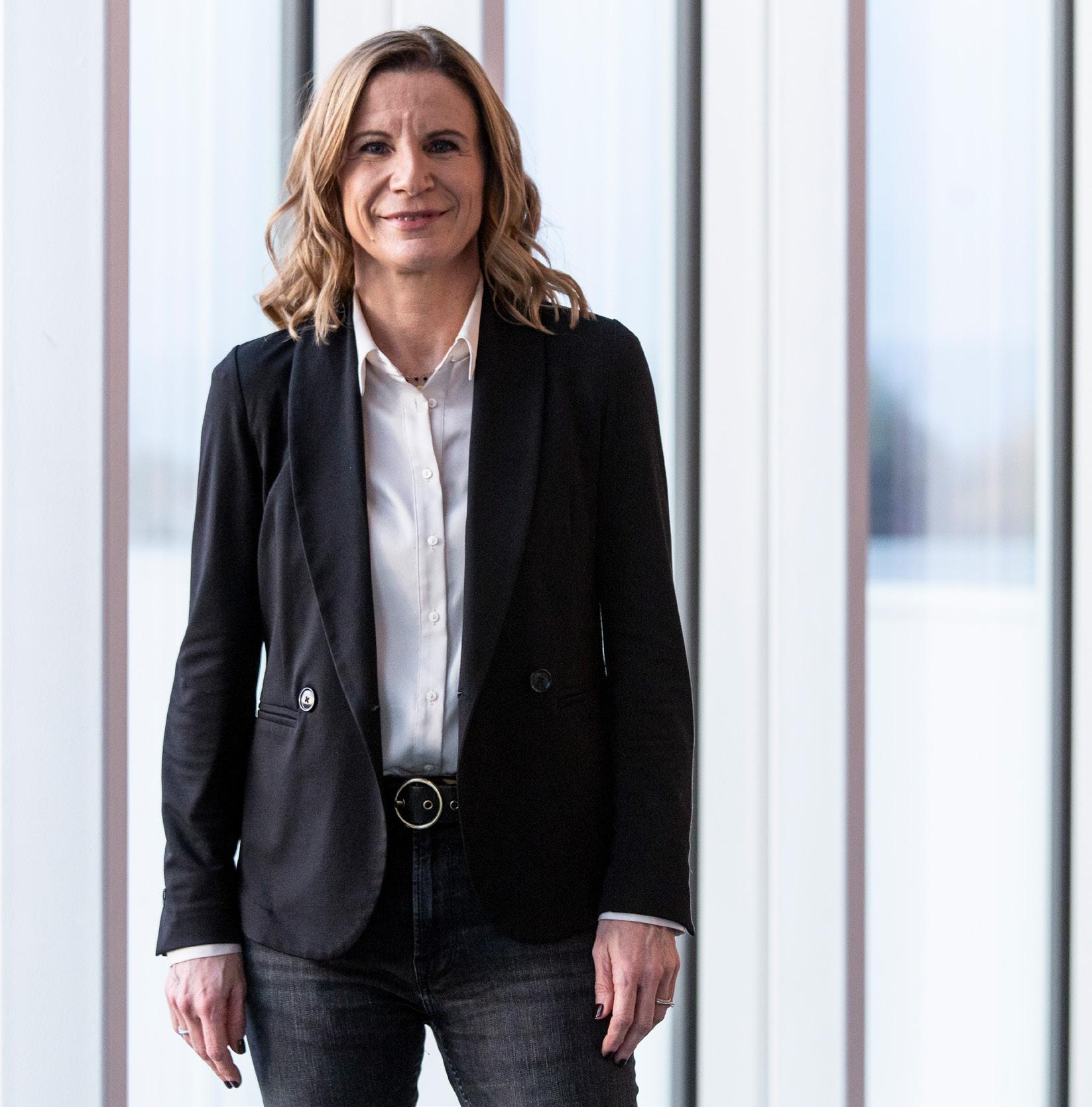
02 Corporate identity
Galdi Srl, [“Galdi,” “Company,” or “Organization”] henceforth herein, offers packaging technologies and solutions to the food industries, specifically targeting dairy, egg, and beverage processors such as, for example, water and juice. Galdi’s packaging solutions fill recyclable poly-bonded containers composed of more than 70 percent FSC paper, known in the industry as “Gable Top”
The Global Industry Classification Standard identifies the company within the “Industrial Machinery & Supplies & Components” category. Galdi acts as a partner for customers, offering not only primary packaging solutions but also other services, such as complete packaging line engineering , which includes packaging systems for secondary packaging and end-of-line. Galdi works with companies of different sizes, from start-ups to multinationals with offices around the world, supporting them in achieving their desired business objectives. These are reali -
ties with different needs, which Galdi approaches in a diversified way and with specific skills, from packaging design to management consulting, passing through technical packaging solutions to engineering and project management skills. These are mostly suitable for structured realities whose goal is to increase the efficiency of production processes.
Galdi offers customers an after-sales technical support service, developed over the years with the aim of supporting customers in different areas of the globe by supplying spare parts and maintenance services designed according to each customer’s production goals . The Help Desk service is complemented by the After Sales division with teams of specialized technicians in Italy and abroad. In particular, the company has hired local technicians in the areas where Galdi’s “Strategic Business Units” are located: the United States, Morocco and Russia.
1985 2000 2010 2016
Galdino Candiotto founds GALDI
Galdi gets ISO 9001 Certification for the first time Lean Production is introduced, enabling waste reduction and resource reorganization
The company carries out an analysis on the Carbon Footprint and Water Scarcity Footprint of its filling solutions
The strong propensity for innovation, inherent in Galdi’s culture and passed on by Galdino Candiotto, who founded it in 1985, has inspired the continuous evolution of products and their digital transformation. With the aim of reducing the environmental impact of packaging technologies and plant operating costs, Galdi has developed a digital platform that monitors the performance of systems. Through the data it returns to end users a whole range of useful information to improve efficiency and simplify the use of packaging lines.
In order to maintain a high level of product and service innovation, the company collaborates with local universities and schools, offering internship, Thesis and Ph.D. opportunities for young people , with the aim of bringing them closer to and introducing them to the company with a view to future employment.
Galdi’s commitment to the territory is translated first and foremost by seeking out local suppliers and partners, capable of making a difference, aiming to build a solid and loyal supply chain. In addition, the company aims to involve partners not only in the growth path to meet market challenges, but also toward ESG issues and Sustainable Development Goals.
In 2022 Galdi became a Benefit Corporation . Benefit Corporations represent a business model that pursues one or more purposes of common benefit in carrying out its activities, in addition to the purpose of generating profit. It operates in a responsible, sustainable and transparent manner towards people, communities, territory and the environment.
2018 2022 2023 2024
Galdi updates its Environmental Management Systemcertified in 2012-to the requirements of the new UNI EN ISO 14001:2015 standard, obtaining Certification under the new standard
Galdi becomes a Benefit Corporation
The company gets the Bronze Medal from EcoVadis and writes the first Sustainability Report.
LCA study on Gable Top poly-coated board
The company gets the Silver Medal from EcoVadis.Adoption of an Organization, Management and Control Model pursuant to Legislative Decree 231/01
03 ESG Identity
3.1 ANALYSIS OF THE SDG s
During 2024 Galdi organized a training event for employees on Sustainability issues. The goal of the event was to get the general ESG principles understood and to conduct dedicated training with respect to the Sustainable Development Goals (SDGs) . The 17 Sustainable Development Goals (SDGs) outlined in the 2030 Agenda and endorsed by the 193 Member States of the United Nations in 2015 aim to catalyze concrete actions to build an equitable, prosperous, and sustainable future by fostering a strategic analysis of its work against global challenges. By promoting transparency and corporate responsibility, these goals guide businesses in identifying and mitigating risks to people and the environment, as well as creating innovative products and services that foster sustainable development. The way to 2030 requires companies not only to adapt their business models to the demands of sustainability, but also to operate with transparency and accountability. In this way, companies can position themselves as protagonists of positive change, capable of reconciling economic progress with the well-being of people and the preservation of the planet.
The training event was attended by 75 Galdi employees who, at the end of the training session held at Galdi Village, conducted a workshop aimed at identifying the priority SDGs with respect to Galdi’s business model . Out of 17 Goals, 12 were prioritized and ranked on 3 levels of importance.
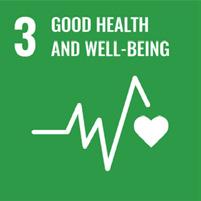



3.2

EcoVadis operates an assessment platform that allows companies to monitor the sustainability performance of their suppliers in different countries around the world. The platform is structured through a questionnaire that covers different ESG issues. Specifically, ethical/social, environmental, corporate governance, and supply chain aspects.
The rating obtained by Galdi in 2024 corresponds to the Silver medal, with an overall score of 72 points out of 100 , which corresponds to the 93rd percentile. The area where the highest score was obtained was the Environment Area. The graph below shows the trend of Galdi’s EcoVadis score related to the two-year period 2023-2024.

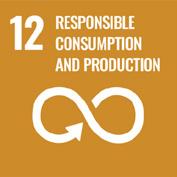
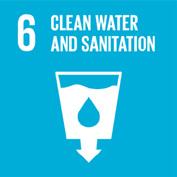
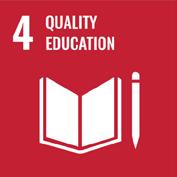






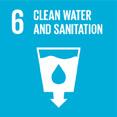

ENVIRONMENT
• Purchase of FSC-certified corrugated cardboard for transporting products
• 100% of electricity purchased from the grid that comes from renewable sources
• Presence of a corporate power management system for timely monitoring of energy consumption for different business areas
• Photovoltaic system for self-generation of energy
• Emissions CO 2 from natural gas use offset through purchase of Gas 100% Offsets CO 2
• Galdi Village certified LEED ® Gold
• Presence of a wastewater phyto-depuration system
• Using the Too Good To Go platform in the corporate bistro to avoid food waste
• ISO 14001 Certification
SOCIAL
• ISO 45001 Certification
• Family Audit Certification

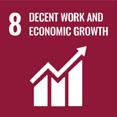

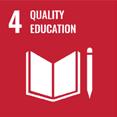

• Welfare Platform
• Events held in the area organized at Galdi Village
• Supporting the local community and schools through dedicated projects
• Company gym available for employees




GOVERNANCE
• Silver Medal in EcoVadis Sustainability Rating
• Presence of a Supervisory Board and an “Organization, Management and Control Model” pursuant to Legislative Decree No. 231/2001
• Presence of a Supplier Code of Conduct
• Corporate event dedicated to sustainable supply chain with supplier participation
• ESG assessment of suppliers through dedicated platform
• Veneto Region Compraverde Award , obtained for the business areas green revolution and ecological transition, energy saving and renewable sources, food waste reduction, cohesion and inclusion
• Galdi is a Benefit Corporation
• Presence of two women on the BOD
• Presence of a Sustainability Team (cross-functional team)
• ISO 9001 Certification
• Presence of a Code of Ethics
• At least 5% of turnover is reinvested in R&D
04
Materiality analysis
During 2023 Galdi conducted a materiality analysis with the aim of identifying the areas where the company’s activities may most affect natural ecosystems as well as the well-being of communities, people, and all stakeholders . Pursuant to the standard for sustainability reporting set by the Global Sustainability Standard Board, material aspects of sustainability were assessed with respect to their ability to significantly influence stakeholders’ interest and opinion toward Galdi. The analysis process was applied internally to the Company’s management in order to identify material issues. Subsequently, the materiality questionnaire was shared with other stakeholders such as employees, customers, suppliers, insurance companies, banks, trade associations, etc.
The current context of sustainability reporting involves the study of two different perspectives of materiality: the impact materiality perspective and the financial materiality perspective. Galdi conducted an analysis based on the impact materiality approach , which states that a sustainability issue is material if it gives rise to significant impacts (negative or positive, actual or potential) on people and/or the environment caused by the organization’s operations and investments, its products and/or services, or its value chain in the short, medium, or long term.
Impact materiality includes impacts on the environment and on people; the company’s view of impacts alone would inexorably lead to a one-sided and lacking analysis of considerations and aspects detectable by external entities related to Galdi. With this in mind, stakeholders whose views ensure a comprehensive overview of relevant aspects of the organization were identified. Stakeholders were involved during the operational phases of the materiality analysis through a process called stakeholder engagement in order to detect their interests and priorities in relation to Galdi’s business.
Internal and external stakeholders identified and involved by the Company were as follows:
• EMPLOYEES
• PRODUCT SUPPLIERS
• SERVICE PROVIDERS
• CUSTOMERS
• BANKS
• INSURANCE
• EXTERNAL PROFESSIONALS
• AREA ASSOCIATIONS
The breakdown of responses received from stakeholders is shown in the chart below.
STAKEHOLDERS
4.1 MATERIAL THEMES
Galdi identified stakeholder categories based on some general parameters such as frequency of contact with the Organization and relative influence. The stakeholders’ priorities with respect to the material issues selected by Galdi were collected through the sending and subsequent analysis of online questionnaires, with the aim of listening to them and involving them in the process of identifying the most relevant issues. The following chart shows the material issues in order of impact for both the Company and its stakeholders
The Materiality Analysis carried out in FY 2023 is believed to be confirmed for 2024 as well , as there are no significant changes to the organizational context that would require an update to the work carried out. European regulatory developments in the ESG area, including the voluntary VSME standards, will be evaluated during 2025 to assess possible updates to the Materiality Analysis, with the aim of including the financial materiality perspective as well.
4.2 TABLE OF IMPACTS
The table below shows the impacts resulting from the Organization’s activities related to material issues . Thus, starting from the material issues identified, it is possible to reflect the negative or positive, current, or potential impacts caused by the organization’s operations and investments, its products and/or services, or its value chain with respect to material ESG issues.
AREA ESG - ENVIRONMENT
Current impact refers to an impact that is present for the organization, while potential impact refers to an impact that could be generated but whose occurrence has not yet happened. Finally, the material issues divided into the three ESG dimensions were associated with each common benefit purpose included within the Corporate Charter.
INNOVATION MANAGEMENT
TRAINING AND HUMAN CAPITAL DEVELOPMENT
HEALTH AND SAFETY
EMPLOYEE BENEFITS AND WELFARE
BUSINESS INTEGRITY, ETHICS AND TRANSPARENCY
RESPONSIBKLE SUPPLY CHAIN
CLIMATE STRATEGIES
WASTE MANAGEMENT AND REDUCTION
CIRCULAR ECONOMY SOLUTIONS
SUPPORT AND ENHANCEMENT OF THE TERRITORY
ENERGY MANAGEMENT
ENERGY MANAGEMENT
Adoption of business practices aimed at extending the life cycle of machinery and applying internal programs aimed at the recovery and reuse of materials and production waste
Failure to adopt circular economy practices, both product and process
Implementation of strategies aimed at efficiency of infrastructure and business processes in order to improve energy-related business performance and impacts
Failure to adopt solutions to improve energy efficiency of infrastructure and business processes, resulting in increased energy consumption and related energy-related economic and environmental impacts
CLIMATE STRATEGIES
WASTE MANAGEMENT AND REDUCTION
Monitoring and implementing corporate strategies and practices aimed at reducing the impacts generated with respect to GHG emissions, contributing positively to climate change mitigation
Contributing to climate change through GHG emissions.
Implementation of solutions aimed at water monitoring and efficiency. Improvement of business processes in order to conserve the water re
source
Failure to adopt business practices to conserve water
Management and optimization of waste generated through the introduction of virtuous practices aimed at recycling and material recovery, resulting in the reduction of hazardous, non-hazardous waste and waste from the production process
Inadequate management and disposal of generated waste with potential consequences of high environmental impact and pollution, regulatory penalties, and human health risks
Positive
Current
AREA ESG - SOCIAL AREA ESG - GOVERNANCE
Implementation of a Health and Safety Management System capable of monitoring and mitigating risk situations by raising staff awareness and implementing improvement actions to reduce accidents and injuries in the workplace
• Positive
• Current
HEALTH AND SAFETY
EMPLOYEE BENEFITS AND WELFARE
Lack of proper implementation of a Health and Safety Management System resulting in an increase in workplace accidents and injuries, lower employee trust and satisfaction, and increased likelihood of reputational damage and regulatory risks
Improving workers' welfare through welfare plans and equal opportunity protection
Lack of attention aimed at the well-being of its human resources and the creation of an equitable and inclusive environment resulting in a potential reduction in employee satisfaction, lower productivity, and increased employee turnover
Staff training and engagement with the goal of retaining and attracting talented people
• Negative • Potential
• Positive
• Current
• Negative
• Potential
• Positive • Current
TRAINING AND HUMAN CAPITAL DEVELOPMENT
Difficulty in finding and attracting qualified personnel resulting from a failure to focus on training and professional development of human capital
Negative • Potential
SUPPORT AND ENHANCEMENT OF THE TERRITORY
Social and economic development in the areas where the company operates, through economic investments and initiatives to support the local area
Disputes and environmental damage caused to local land and communities
• Positive
• Current
• Negative
• Potential
INNOVATION MANAGEMENT
SUPPLY CHAIN RESPONSABILE
Proactive drive toward research, innovation and development of new processes and products to meet new and changing customer and market needs
Use of inefficient processes and obsolete technologies that generate wasted resources, negative impacts on the environment, and loss of market opportunities
Identification and management of environmental, social and economic impacts arising from its supply chain. Commitment to the purchase of materials, goods and services with better environmental impacts
Contribution to the generation of negative social and environmental impacts from one's purchasing choices and failure to manage ESG risks from one's supply chain
• Positive
• Current
• Negative
• Potential
• Positive • Potential
• Negative • Potential
BUSINESS INTEGRITY, ETHICS AND TRANSPARENCY
Business development in line with the principles of integrity and ethics in business conduct, contributing to internal and external awareness of these issues. Promoting the concept of transparency of information provided by the company also in reference to being a Benefit Company
Adoption of a business model that is not aligned with issues of ethics, integrity, accountability, and corporate transparency with potential negative implications in terms of reputation, trust from customers and employees, increased likelihood of legal risks, and compromised longterm stability
Implementation of strategies to integrate sustainability parameters into the design of new machinery
• Positive
• Current
• Positive
• Current
• Negative
• Negative • PotentialECODESIGN AND LIFE CYCLE MANAGEMENT
Failure to consider ecodesign aspects in the design of new machinery
• Potential
4.3 MATERIALITY ANALYSIS
The final output of the materiality analysis consists of a scatter plot called the materiality matrix shown below, which allows you to visualize the
priority of the impact related to each material issue for internal and external stakeholders (y-axis) and for the company (abscissae axis)
MATERIALITY MATRIX
EMPLOYEE BENEFITS AND WELFARE
BUSINESS INTEGRITY, ETHICS AND TRANSPARENCY
SUPPORT AND ENHANCEMENT OF THE TERRITORY
RESPONSIBLE SUPPLY CHAIN
HEALTH AND SAFETY
INNOVATION MANAGEMENT
TRAINING AND HUMAN CAPITAL DEVELOPMENT
CLIMATE STRATEGIES
CIRCULAR ECONOMY SOLUTIONS
WASTE MANAGEMENT AND REDUCTION
ENERGY MANAGEMENT
WATER RESOURCE MANAGEMENT
ECODESIGN AND LIFE CYCLE MANAGEMENT
IMPACT FOR GALDI
05 Governance
Galdi is a sole-member limited liability company incorporated in Italy at the Register of Companies of Treviso-Belluno. In order to respond effectively to the interests of its stakeholders, Galdi has adopted a multi-person collegial form of administration, and the auditing entity is a single-person body. The current administrative body is the Board of Directors whose term of office is until the approval of the financial statements as of December 31, 2025. The Board of Directors provides for the ordinary and extraordinary management of the company and establishes guidelines for strategic direction, evaluation of the adequacy of the organizational, administrative, and accounting structure, as well as general evaluation of management performance.
The structure of corporate bodies as of December 31, 2024 includes the 6-member Board of Directors, which carries out all operations necessary to achieve the corporate purpose and manages the company with the diligence required by the type of the office
For the number of other principal offices held and commitments undertaken by each member of Galdi’s Board of Directors, please refer to what is published in the Companies Register in relation to each member. Members of the Board of Directors are appointed by the ordinary shareholders’ meeting, which passes resolutions in accordance with legal majorities.
It is the responsibility of the Board of Directors to adopt the resolutions required by law, as well as adaptations of the Bylaws to regulatory provisions. The Board of Directors is responsible for the management and strategic direction of Galdi and is also responsible for decision-making processes and control of the management of the Company’s impacts on the economy, the environment and people, as required by the legal regulation of Benefit Societies in Italy. It annually approves the Annual Report on the Pursuit of the Common Benefit pursuant to Stability Law 208/2015 (Art. 1 c. 376-384), attached to the annual financial statements.
In carrying out every activity, Galdi operates by avoiding situations of conflict of interest, real or even only potential, that may interfere with the ability to impartially make decisions in the best interest of the Company and in full compliance with the rules described within the Company’s Code of Ethics. In general, the organization is committed to maintaining an ethical and transparent work environment where conflicts of interest are managed effectively and in line with best corporate governance practices. Notifications of critical issues are conveyed to the highest governing body by the executive directors. They have a duty to make the board fully aware of the adequacy of the company’s organizational and administrative structure and its general performance. There were no critical issues reported to the highest governing body during the reporting period .
The Annual Report is prepared through a participatory process involving multiple internal company functions and external stakeholders. This process includes the collection and analysis of data on activities, business relationships and internal initiatives, as well as stakeholder engagement to ensure an inclusive view of impacts. This document is prepared by the Company in line with the requirements of the regulations set forth in the Law on Benefit Societies (Law 208/2015) and approved by the Board of Directors jointly with the Draft Financial Statements. It constitutes to all intents and purposes an annex to the same. The structure of the Board of Directors can be viewed below.
For the purpose of identifying members of the Board of Directors, diversified skills are required
in order to ensure a balanced combination of profiles and experience.
The members of the Board of Directors shall be suitable for the performance of the office, in accordance with current regulations, and shall meet the requirements of eligibility, professionalism, and honorability required by law. All members of the Board of Directors ensure appropriate expertise with regard to the impacts generated by the organization. Board members are updated and involved with respect to processes related to materiality analysis and Galdi’s social, environmental and governance-related impacts. The Chairman and other Board members are briefed and directly view the contents of the corporate sustainability report. The organization has a sole auditor.
COMPOSITION OF THE BOARD OF DIRECTORS BY GENDER
COMPOSITION OF THE BOARD OF DIRECTORS BY AGE GROUP
100% > 50 years
5.1 BENEFIT CORPORATION

In 2022 Galdi became a Benefit Corporation. Benefit Corporations are driven by innovative values such as the commitment referred to environmental and social aspects, integrating in their corporate purpose, in addition to the objectives of generating profits, the purpose of having a positive cross-sectional impact on society and the community in which they operate . Common benefit is defined as the pursuit of one or more positive effects (which can also be pursued by reducing negative effects) on people, communities, territory and environment, cultural and social goods and activities, entities and associations, and other stakeholders.
The transparent way in which Benefit Corporations operate expresses the duty to communicate annually and report through the requirements of a comprehensive, credible and independent standard, the results that have been achieved, progress and future commitments toward achieving a positive social and environmental impact.
The responsibility of Benefit Corporations is embodied in their commitment to consider the Cor-
poration impact on the community and the environment in order to create a long-term sustainable outcome for all stakeholders.
In order to comply with the regulatory requirements of Law No. 208 of December 28, 2015, paragraphs 376-384 and Annexes 4-5, the company decided to measure its impacts using the international B Impact Assessment tool . The score currently achieved by Galdi was found to be 76.3. To date, the score has not been validated or certified by the B Lab reference body.
Finally, in compliance with Section 380 of the Law regulating Benefit Corporations, responsible individuals were identified to be entrusted with the functions and tasks aimed at the pursuit of common benefit purposes. The aim was to strengthen the structure of the corporate staff, entrusting the responsible persons with the task of supporting the Directors in the pursuit of the common benefit purposes described within the company’s Articles of Association. Moreover, the task is monitoring the activities by Galdi for this purpose. As a Benefit Corporation Galdi is committed to having a positive impact on the community and the environment. An evolved concept of a company that goes beyond profit goals. 01 02 03 04
THE CORPORATION HAS FOR ITS OBJECT THE SPECIFIC PURPOSES OF COMMON BENEFIT DESCRIBED BELOW:
The constant focus on innovation and sustainability of processes to make ethical, quality, safe and effective products
A concrete and transparent commitment to environmental protection
Ensuring the well-being of workers, their families and the community through the development of initiatives that promote skill growth, awareness and dissemination of healthy lifestyles as well as the principles of respect and diversity
Promoting the culture of beautiful and beauty, including ensuring support for cultural and social initiatives, and the enhancement of the local area

5.2 INNOVATION MANAGEMENT
Realizing that more than 8 million people consume a product packaged by Galdi technology on a daily basis, the level of food safety that the Company guarantees to its customers is the company’s priority and in effect a key innovation driver
Other drivers leading the development of technology solutions are focused on resource-conscious use of resources and in reducing environmental impact through more efficient consumption of electricity, water and compressed air while increasing production performance.
Galdi has long adopted the Eco Design planning methodology that prioritizes the development of sustainable solutions, carrying out a study with the University of Padua on the environmental impact of packaging systems in terms of energy, water consumption and CO 2 emissions . The Eco Design methodology integrates sustainability parameters into the design, which is then the starting and ending point for any innovation. The same approach is applied to the overall efficiency of systems. The process keeps progress aimed at reducing the impact of packaging solutions continuous and measurable
Measuring the behavior of packaging technologies is indeed essential to understand where or how to possibly improve or support the customer in the proper management of the plant. The leading indicator in this area is the TCO (Total Cost of Ownership) . It represents the total cost of ownership for technology users, considering the operating costs of the plant, starting from the initial investment up to energy, water, compressed air and chemical consumption, as well as packaging, maintenance, etc.
As a manufacturer of packaging systems, it is Galdi’s priority to support customers in reducing the TCO of packaging solutions. Given the entire life cycle of a packaging system, the Company is constantly striving to find new solutions to reduce costs, consumption and waste, ensuring the best possible return on investment .
A constant focus from this point of view is to optimize the performance of packaging systems and ensure consistent, top-performing productions. For each type of packaged product, the goal is to be able to achieve the highest possible filling speed, while fully respecting the characteristics and quality of the product itself. This is possible thanks to Galdi’s approach to development, which, as in the automotive sector, is based on the platform concept. This approach makes it possible to make the new solutions modular and adaptable in different models depending on the format and the product to be filled.
Coupled with this research and development work is the benefit of advances in technologies. The introduction of next-generation packaging technologies and the development of increasingly high-performance advanced monitoring systems makes it possible to always keep the production efficiency of packaging systems at the top and to improve it over time.
NEW DIGITAL NATIVE PACKAGING TECHNOLOGIES ENSURE:
More stable production
Anticipation of downtime
Net reduction in urgent interventions
Direct connection with remote support
All of this results in more efficient utilization of the packaging solution and a net reduction in utilization costs.
In the medium and long term, proper maintenance of a packaging system also plays an important role. Thanks to the data transmitted by digital native solutions and the systems developed by Galdi, troubleshooting is also possible remotely. This means faster troubleshooting and reduction of urgent interventions-other important items to reduce the TCO of packaging systems.
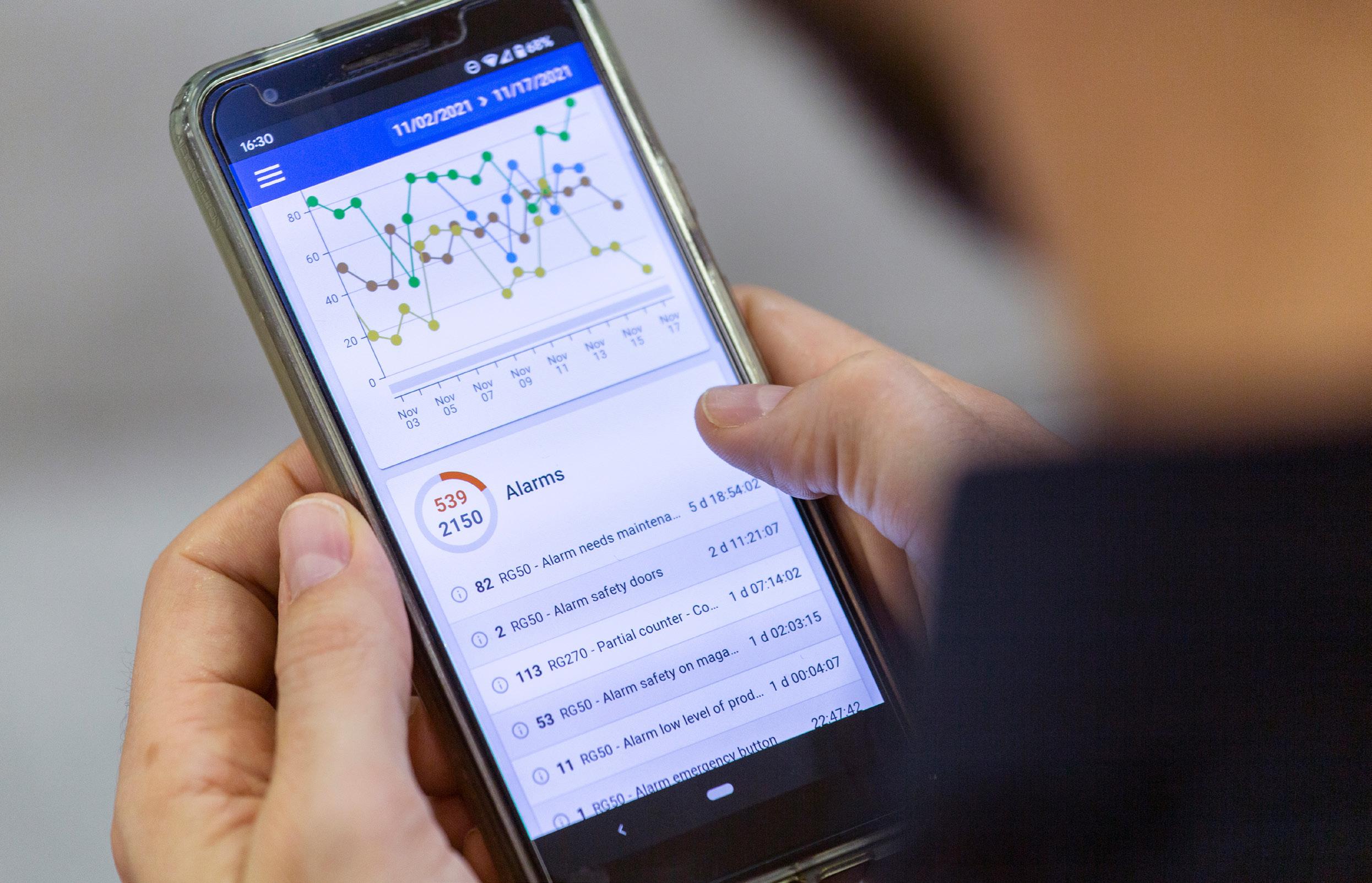
Galdi is committed to continuous improvement of the efficiency of components to maximize their useful life . This goal is pursued through close cooperation between supply chain, designers, after sales, engineers, and testers and made possible by testing, simulations, and knowhow gained through activities from customers.
Reducing consumption and waste is a constantly renewing mission.
An example of this is one of the most recently developed platforms, the RG280 model, which is distinguished from the RG270 model by its high hygienic performance. In addition, the RG280 in the washing stage requires the use of less water and chemical solutions than the previous model (32% less water and 59% less chemicals than the RG270 model), yet providing higher hygiene standards and allowing for extended product shelf-lives.
Additionally, special attention during the development of the RG280 platform was paid to the ‘efficiency of the filling process, achieving metering accuracy as early as the first packaged units, thus limiting the waste of resources.
In 2024, Galdi expanded its portfolio with the new RG480 , a twin-line packaging machine designed for packaging half-gallon formats (95x95 mm section) with a production capacity of 14,000 cartons/hour. This model was developed to meet the needs of companies with high production volumes, particularly in the most competitive markets, such as the U.S., where efficiency and reliability are key factors.
One of the distinguishing features of the RG480 is its extreme operational flexibility: the two lines can operate either independently, optimizing production as needed, or in unified mode, doubling filling capacity and increasing productivity.
Underlying the design was an in-depth analysis of operators’ experience, with the goal of creating a machine that not only simplifies daily use but also optimizes maintenance operations. This approach is particularly reflected in the operator interface, which was developed based on direct feedback to ensure intuitive and efficient management of the system.


Designed to ensure maximum usability, the RG480 is designed to be easily used even by operators with little experience. With a wizard mode available via HMI and minimal training, personnel can take full advantage of the machine’s capabilities right out of the box.
This solution is therefore a strategic advantage for companies with high turnover, ensuring consistent performance and a consistently reliable production flow, regardless of operators’ experience. Ongoing research, as well as the development of new solutions to optimize the impact during the life cycle of packaging systems, are therefore also seen with a view to reducing TCO, to make Galdi products increasingly reliable, efficient and sustainable.
Fundamental then for TCO reduction is to increase plant efficiency, which can be measured through the MME index (Machine Mechanical Efficiency, according to DIN 8782) The MME is an efficiency indicator that is related to increasing the availability of the packaging system for production (working time). It is therefore crucial for the reduction of impacts and costs to develop increasingly efficient products.
Thus, Galdi’s goals include providing customers with increasingly enabling packaging solutions and technologies that can contribute to raising the MME, increasing system availability periods for production, reducing downtime, and increasing the resolving capacity of the downtime so that production activity and costs can be reduced
For these reasons, Galdi uses telemetry data collected from packaging systems and complete lines to inform customers and develop strategies with them to improve efficiency, aiming for increasingly high-performance but tightly controlled production lines to reduce their operational and environmental impacts.
SUSTAINABILITY OF PRODUCTION PROCESSES
Galdi’s growth in recent years and the growth plan the company has outlined for the future have led to the implementation of a series of projects in the production area that have led to process efficiency. In particular, the redefinition of space has resulted in more efficient production processes for the same number of resources
According to this growth vision, a continuous improvement path has been pursued using the techniques of the Lean Manufacturing philosophy. The Continuous Improvement operations team has also been defined to follow this process, starting in 2024
In 2023, this activity aimed at gaining internal time efficiency of 10% in assembly functions and 20% in testing functions by the end of 2024, leading to a production increase while maintaining the same resources.
The testing department efficiency of 20% was fully achieved during 2024 .
The actions that led to these efficiency results in 2024 mainly involved two departments. In the assembly department, the results were achieved by working on restructuring the supply chain while in the testing department, action was taken on changing the standard sequence of work by going so far as to anticipate some activities. The common thread for the improvements achieved during 2024 was more effective communication between business areas through the planning of dedicated meetings. The goal for 2025 will be to work on the three newest and most innovative series of packaging machines: RG80, RG280, RG270 with an additional 10 percent efficiency improvement in the assembly process and 15 percent in the testing process.

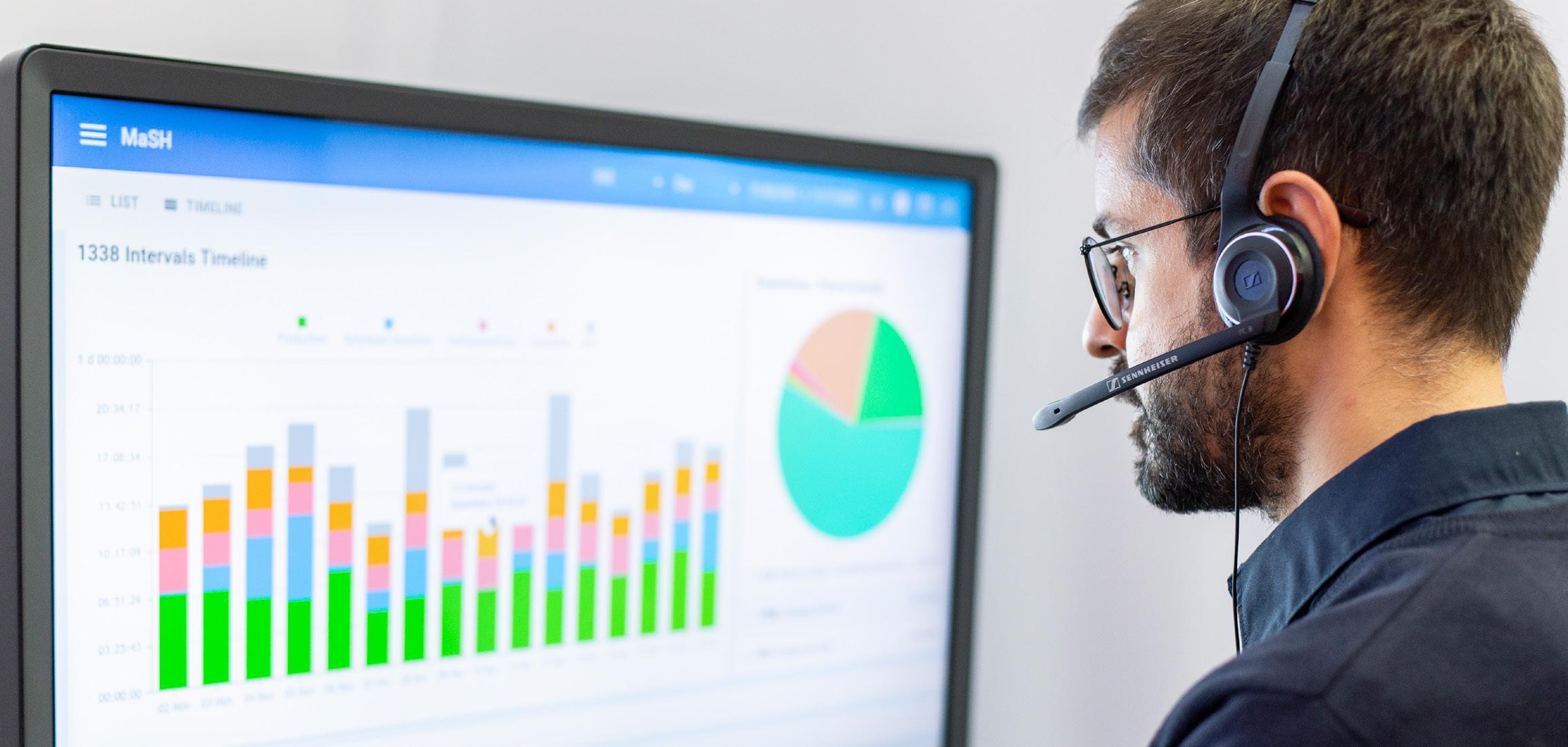
The evolution of digital services continues to be driven by the goal of supporting customers in achieving their business goals while reducing their carbon footprint
In 2024, the first year in which Galdi’s servitization division operated at full capacity, internal processes were consolidated through the formation of interdepartmental teams, which were born out of a careful analysis of digital initiatives already underway and prioritization based on the potential for customer value creation. This path has led to the structuring and enhancement of services enabled by digital technologies, capable of transforming the traditional approach to maintenance and after-sales support. In particular, Galdi has developed solutions for proactive and personalized maintenance, continuous and intelligent plant monitoring through reports and notifications, and remote technical assistance service, which together offer data-driven support that ensures timely and effective interventions
At the same time, a task force dedicated to remote support of global customers has been established
Through the integration of technical expertise and digital tools, it makes it possible to stand by customers in resolving issues proactively.
To ensure full accessibility of these digital services to the existing fleet of machines, a data infrastructure upgrade plan was initiated to improve data stability and quality. This intervention was necessary to address current connectivity limitations and accompany the transition to the latest IIoT infrastructure, avoiding the risk of excluding some of the installed machines.
The adoption of technologies such as IoT, Artificial Intelligence, Cloud Computing and Data Analytics, coupled with the experience of our engineers, puts us in a privileged position to lead the transition to an integrated service model that optimizes productivity, reduces waste and, as a result, the environmental impact of our clients’ business
By 2024, the number of connected packaging systems out of the total number of facilities equipped with IoT infrastructure was 45 percent.
DIGITAL SERVICES
5.3 BUSINESS INTEGRITY, ETHICS AND TRANSPARENCY
Integrity, transparency, honesty, fairness, loyalty and professionalism are the principles that should guide the company’s activities and business, in compliance with the rules set up to protect competition and with the understanding that lawful and integral behavior is the foundation for lasting success, built on the trust of customers, investors, colleagues and the local community.
In 2024 Galdi adopted an Organization, Management and Control Model under Legislative Decree 231/01 covering a range of crimes. The Supervisory Board established under Legislative Decree 231/01 is responsible for supervising the effectiveness, efficiency, maintenance and updating of the organization, management and control model under Legislative Decree 231/01. In addition, the organization, management and control model pursuant to Legislative Decree 231/01 includes general rules of conduct and more specific protocols, including aspects related to control activities that must be complied with in carrying out the relevant activities.
In addition, through the Procedure for Reporting Violations, Whistleblowing , the methods through which to report any violations of national or European Union regulatory provisions that harm Galdi’s public interest or integrity are regulated.
The Whistleblowing procedure is available in the “legal info” section of the company’s website where all the information inherent to who can report, how to report, what can be reported, how reports are handled, what protection measures are guaranteed, and how the personal data provided are processed. It is reported that no reports were received through this channel during 2023/2024
To decline the company’s commitment to integrity, ethics, and transparency, during 2023 Galdi created a Code of Business Ethics to guide the company in making decisions . The approach to sustainability in Galdi is inspired by international standards, such as International Labor Organization (ILO) Standards; Sustainable Development Goals defined by the United Nations in Agenda 2030 (SDGs); and the Universal Declaration for Human Rights.
Specifically, the principles described within the Code of Ethics are as follows: a commitment to avoid all forms of discrimination, harassment, forced and/or compulsory labor, child labor, and defending the dignity of workers, encouraging diversity and providing equal opportunities for all through continuing education. The Code of Ethics is a tool for implementing ethical-social
and environmental responsibility and enunciates the set of rights, duties and responsibilities to all stakeholders. Moreover, it contributes to the creation and maintenance of a corporate culture based on integrity, ethics and responsibility
The Company is constantly committed to operating in compliance with applicable regulations in all its activities; this commitment reflects an unwavering focus on integrity, transparency and business ethics, as well as dedication to serving customers in compliance with laws and regulations. Galdi shall continue to actively monitor regulatory compliance and take corrective and preventive measures when necessary to ensure continued compliance. As specified within its Code of Ethics, Galdi adopts a zero tolerance policy toward corrupt practices, illegitimate favors, and collusive behavior. It is absolutely forbidden to solicit, directly or through third parties, personal benefits for oneself or others, contrary to the principles of fairness, honesty, respect and professionalism.
These provisions are regulated within the Code of Ethics. During the reporting period, Galdi confirms that no incidents of corruption were encountered. No employees were disciplined or dismissed for reasons of corruption, and no contracts entered
with business partners had to be terminated or not renewed due to violations related to corruption events. In addition, no legal cases in the public domain regarding bribery were filed against the organization or its employees during this reporting period. As outlined in the Code of Ethics, Galdi recognizes free competition, provided it is fair, as a determining factor for growth and continuous business improvement, further confirming that during the reporting period there were no legal actions regarding anti-competitive behavior and violations of antitrust laws in which Galdi was identified as a participant. Finally, no incidents of discrimination were found within the organization during the reporting year
In 2024 Galdi renewed the legality rating , which is a summary indicator of compliance with high standards of legality by companies that have applied for it. This recognition is expressed through a score between a minimum of one and a maximum of three “stars.” Galdi Srl obtained the result of ★★

5.4 ECODESIGN AND LIFE CYCLE MANAGEMENT
In 2017, in collaboration with the University of Padua, Galdi conducted the Life Cycle Analysis of two products , focusing on the indicators of Carbon Footprint and Water Scarcity Footprint. Subject of the analysis were the RG250UCS (old model) and RG270UCS (new and current model) packaging solutions made in the standard configuration (no optional). The objective of the analysis was to identify potential hot-spots related to the production and use of the packaging systems and to define useful guidelines for the development of future company products. The boundary of the study was the set of all business processes required for the manufacture, distribution, use, maintenance and possible disposal of the packaging systems under analysis.
The study highlighted that the system use phase at the customer site has the greatest impact in relation to Carbon Footprint and Water Scarcity Footprint. From the results of this analysis, Galdi sought to guide the design choices of packaging solutions on the aspects described above in order to pursue an improvement in the environmental performance of the systems implemented
Galdi also directed the design choices of new packaging solutions with the goal of reducing consumption in relation to production performance. The main objective was to develop packaging systems that help increase the shelf-life of the packaged product , through the study and implementation of some features for improving hygienic conditions during the packaging process stages. By increasing product shelf-life, it is possible to ensure a longer shelf-life of the product, as well as to avoid contamination, thereby decreasing product waste and thus limiting “food-waste.”

design/development phase of a carton dedicated to the packaging of non-food products, to assess whether what had been developed so far could be improved.
During 2023, Galdi’s packaging division, FILL good, commissioned an LCA study to verify the actual impact of the Gable Top poly-coated cardboard in a different area of use than the usual food sector, that is, applied to the non-food sector of detergents and home and body-care products . The purpose was to conduct an analysis of the various stages of the process, with particular focus on those usually most impactful, from cradle to grave of the product, to verify the actual sustainability of the container compared to other types of packaging currently available on the market. The functional unit for the containers examined was 1000 ml, and the study area was Italy. The study was used with the aim of getting more information during the
The results obtained (which cannot be published because the study has not yet been validated by a third-party certifying body) have laid the groundwork for further development in this direction . The product has been nominated for the “Oscar dell’Imballaggio 2024”, which has rewarded the most innovative ideas and solutions related to packaging and packaging systems every year since 1957. The complex issue of accessibility to the packaged product, ranging from easy opening to ergonomics to the clarity and transparency of the information on the packaging is one of the focuses of the 2024 edition of the Best Packaging contest. In 2024 Galdi was among the finalists in the contest
Regarding circular economy solutions applied to the product, Galdi offers a service of buying and selling used packaging solutions, under its own brand . The restoration of packaging technologies actually lowers the environmental impact of disposal. A saving for the environment but also for customers. Those who sell a second-hand Galdi’s product save on the expense and environmental burden of disposing of packaging systems (even transport to the site is responsibility of Galdi). On the other hand, those who buy shall be able to count on a remanufactured and upgraded packaging system directly from the manufacturer, with a still long useful life cycle.
Also in 2024 some machines were withdrawn from the market that underwent revamping and refurbishment.
5.5 RESPONSIBLE SUPPLY CHAIN
Galdi’s main suppliers are represented by companies that produce stainless steel custom components, (carpentry, CNC, etc.), electrical panels, electrical, electronic and mechanical components, as well as suppliers of wood packaging. Galdi, aware that the values it believes in can only be fully respected if they are shared with all its business partners, in 2024 defined a Supplier Code of Conduct to better define its expectations and guidelines of behavior in the ESG sphere to which suppliers shall adhere in order to maintain business relations with the Company. The Supplier Code of Conduct was drafted in line with international standards, including International Labor Organization conventions.
Regarding the proportion of spending made to local suppliers, in relation to Galdi’s procurement activities, the plant in Postioma di Paese (TV) in the Veneto region of Italy, which is also the company’s Headquarters, was designated as the location of significant activity. As a procurement definition for “local area,” the company decided to consider the 80km surrounding the company headquarters as a metric for measurement.
All direct material suppliers, i.e., suppliers directly related to product manufacturing, active during the fiscal year under consideration, were selected for analysis. The table below shows the percentages of the value of purchases to suppliers located Non-EU, EU, Italy, and within 80 km of the headquarters of Postioma di Paese (TV)
PERCENTAGE OF THE VALUE OF PURCHASES BY SUPPLIERS BY GEOGRAPHIC AREA
within 80 km of Galdi Headquarters, (TV)
With regard to the validation of new suppliers, Galdi follows an internal supplier qualification procedure found in the Quality Manual that includes initial assessments, periodic re-evaluations, and qualification monitoring. Suppliers are classified according to the type of product and/or service provided and the criticality of the same, with particular attention to those that supply products with direct impact on the essential requirements of finished products. Supplier selection and purchasing conditions are based on an objective assessment of quality,
price, and ability to provide services at an appropriate level, with a focus on sustainability issues. The latter element shall be increasingly integrated in the coming reporting years, with the intention that sustainability shall increasingly become a requirement for supplier listing. On a general level, it is emphasized that Galdi, in the supplier qualification process, assesses the level of compliance of the supplier’s Quality System in accordance with the relevant regulations in the field of products of interest.

“SUSTAINABLE
SUPPLY CHAIN: WINNING RELATIONSHIPS” EVENT
Galdi recognizes the value of suppliers as indispensable partners in its path to success. For the most part, these are long-established supply relationships regulated on the basis of orders and by multi-year contracts or framework agreements.
The first event , titled “Sustainable supply chain: winning relationships,” was held in November 2024 with the aim of enhancing and strengthening partnerships with its suppliers on shared sustainability issues
The event, held at Galdi Village on Nov. 21, 2024 and directed at the company’s main direct suppliers, involved 35 suppliers and provided an important opportunity to share the sustainability journey undertaken by Galdi as well as the new initiatives put in place to increasingly promote virtuous practices along the value chain. Crucial issues related to sustainability were addressed, such as reducing environmental impact, optimizing supply chains and promoting open and constructive dialogue on how to pursue common goals for a better future. Through diverse perspectives and virtuous sustainability stories, the meeting was an opportunity to understand how important “connections” are for future-oriented businesses and land.
In conjunction with the event, the presentation of the “Sustainable Eco-Network” exhibition by artist Debora Basei was also held. The event was an opportunity to share upcoming challenges in the area of sustainability, with the intention of requiring the suppliers involved to assess their sustainability performance through an ESG performance assessment system . During the presentation of Galdi’s main supply chain-related objectives, the ESG assessment tool developed to assess Galdi’s supply chain maturity was presented to the involved suppliers.
Through testimonials of good business practices, moments of discussion and exchange of ideas, the aim was to convey how e mbarking on a path of sustainability contributes to the growth of the company and its supply chain . Among the companies present this consolidated the awareness that change requires a collective commitment and that the active participation of all stakeholders is essential to build a better future for present and future generations.
ESG ASSESSMENT OF SUPPLIERS
During the last months of 2024 Galdi took a significant step toward sustainable management of its supply chain by implementing a supplier assessment tool called Sustainability Maturity Level (SML ® ) . This innovative tool allows suppliers to be evaluated from an ESG (Environment, Social, Governance) perspective, providing a summary rating for each assessment area. The main objective of this tool is to measure and manage the sustainability impact of suppliers, enabling the Company to identify and promote sustainable practices throughout the supply chain . Through this assessment, Galdi is able to objectively assess the risks and performance of its suppliers and collaborate with them to continuously improve their sustainability performance, as it emerges from the regulatory requirements in the European landscape (CSRD, CSDD).
BRIEF DESCRIPTION OF THE TOOL USED
The tool used for ESG assessment of suppliers is called Sustainability Maturity Level (SML ® ) and allows the assignment of a risk level for each supplier and a score, expressed as a percentage, which represents the level of maturity in the ESG area and which is generated from four areas examined. Briefly, the areas on which there are quali-quantitative inquiries are: ->
CERTIFICATIONS
• Certifications in environmental and social management syste ms
• Environmental product certifications
• B Corporation certification
• Possession of sustainability r atings (CDP, Ecovadis, SMETA Audit, etc.)
GOVERNANCE
• Statutory qualification Benefit Corporation
• Compliance safeguards
• Composition governing body
• Supply chain
SOCIAL
• Internal and external labor force composition
• Attraction and retention
• Diversity and inclusion
• Enhancement of the territory
ENVIRONMENT
• Consumption and GHG emissions
• Use of the water resource
• Circular economy
• Biodiversity
Compared to other evaluation tools on the market today, the present tool does not require evidence to be uploaded. This was a strategic choice that allowed Galdi to target a tool that can be customized according to its needs. The idea behind the use of this tool is to create a fast and simple data collection system, always keeping in mind that the supply chain is also composed of suppliers who do not have the ability to dedicate significant resources to complete assessments.
Each evaluated company receives an overall and weighted score in the different evaluation areas, which allows Galdi to assign a ranking based on the ESG maturity level of the added suppliers. The operation of this platform is based on the collection of data provided by the companies themselves, through the mechanism of self-declaration. I.e., the quality of the information provided depends on the supplier’s level of transparency. For the verification of this information, since there is no request for document upload, random audits shall be conducted during 2025 on the information provided by suppliers, based on the risk assessment associated with the supplier itself.
Once the assessment is completed and submitted, the provider shall be able to download the certificate of completion, which shows the balanced score achieved and a correlation with the most impacted SDGs .
Ranking & Evaluation
Spot Check
Self-reported Data Collection
Certificate of achieved score
A concrete step towards a more sustainable supply chain
REPORTING ON THE RESULTS ACHIEVED
To date, it is reported that through the evaluation tool, Galdi was able to evaluate 40 direct suppliers out of the 55 involved The 40 suppliers evaluated within the platform during 2024 (including one logistics supplier) account for 67.1 percent of the value of supply expenditures for FY 2024 . This figure certainly represents a significant value of Galdi’s suppliers.
The table below describes statistics on certifications held by suppliers, expressed both as the percentage value of suppliers holding certifications out of the total number of suppliers who responded to the evaluation questionnaire and as the percentage of the value of expenditures incurred in FY 2024 for suppliers with certifications.
CERTIFICATIONS AND PRACTICES ADOPTED BY SUPPLIERS
Through the assessment tool, it was also possible to map Galdi’s supply chain regarding the level of ESG maturity. Specifically, the average total maturity level of suppliers was found to be 27% . The highest score was found to be 47%, while the lowest score was found to be 9%. In the graphs below, it is possible to observe the average ESG maturity level of Galdi’s supply chain in relation to employee and turnover classes.
AVERAGE ESG SCORE OF SUPPLIERS BY REVENUE CLASS
TURNOVER
AVERAGE ESG SCORE OF SUPPLIERS BY EMPLOYEE CLASS
In this way it is also possible to evaluate individual suppliers with respect to company size, having a benchmark with which to compare their performance. As it can be seen from the graphs below, more structured companies have higher levels of ESG maturity on average.
Through this tool it was possible to analyze various KPIs of suppliers, including from the perspective of multivariate analysis of ESG data . From the latter multivariate analysis, it is possible to observe that suppliers belonging to
particularly from €11 to €50
and over €50 Million, achieved on average higher performance in the social and environmental areas.
06 People
A team in constant growth
We invest in experience, expertise and human relationships
The Human Resources Department is engaged in activities that are fundamental to the company’s success: managing people’s training and skill development activities, fostering internal relationships to create a fair and inclusive work environment, attracting and evaluating new profiles with the goal of selecting people who reflect the company’s values , and ensuring the accuracy of personnel-related administrative practices in compliance with current regulations. Experience, expertise and human relations are the basis of Galdi’s daily routine .
The labor market in Italy is currently in a transitional phase, characterized by challenges related to digitization, sustainability and demographic change, but also by opportunities to promote youth employment and the development of innovative skills.
In this scenario, Galdi as of December 31, 2024 has 16 more employees on staff than in the same period of the previous year. Changes in the number of employees considering the threeyear reporting period mainly reflect the growth of the company’s business and Galdi’s commitment to investing in human resources and consolidating its market position. Part of the new hires in 2024 contributed to the creation of a new corporate team dedicated to a new assembly line.
Galdi recognizes the importance of preserving the know-how and experience gained within the corporate environment, fostering the transfer of knowledge between workers with greater seniority and junior figures , believing this to be essential for maintaining operational continuity and ensuring quality and efficiency.
Again for 2024, 100 percent of employees are employed through a permanent employment contract . The preference for permanent contracts not only provides security and stability for employees, but also fosters the creation of a solid and reliable working environment, where knowhow and skills can be developed and preserved over time, thus contributing to the success and continued growth of the organization. All Galdi’s employees in Italy are graded through the CCNL for the engineering sector, ensuring fair working conditions in line with industry regulations, and guaranteeing adequate remuneration, depending on each person’s levels, skills and responsibilities.
Finally, r egarding non-employee workers employed by the organization, it is reported that the average value of temporary workers during the reporting period was 1.5 . The temps performed clerical level duties, in the assembly and warehouse departments. In addition, 6 interns were hosted, including a university student employed in the machine intelligence office and 5 students from technical high schools in the area in alternating school-work.
(employees terminated during the reporting period/total employees as of December 31)
For students on mandatory/curricular internships (both high school and university), a training project is defined in collaboration with their school/ university tutor.
They are given the opportunity to use the company cafeteria free of charge for the days they are on the premises.
A total of 192 hours of paid leave were provided for activities related to blood donation during 2024
The following tables show the breakdown of professional categories in Galdi by classification and diversity (gender and age) for the three-year period 2022-2024. Most employees perform clerical roles, and the most represented age group in the Company appears to be between 30 and 50 years old.
The percentage of women in the company stands as an average value at 17.9 percent.
As for terminations, they mainly involved the over50 age group. There are no non-guaranteed hourly employees in the three-year reporting period. It should be noted that the data below are in headcount, that is, at the end of the reporting period, December 31.
BREAKDOWN OF PROFESSIONAL CATEGORIES BY AGE GROUP
CLASSIFICATION BY JOB DESCRIPTION
2023 2024 2022
BREAKDOWN OF EMPLOYEES BY EMPLOYMENT CONTRACT
2023 2024 2022
RECRUITMENTS AND TERMINATIONS
RECRUITMENT
2023 2024 2022
6.1 HEALTH AND SAFETY
Galdi recognizes that achieving high safety standards depends on the contribution of the entire organization and is committed to this goal by establishing a continuous improvement process in line with the requirements of ISO 45001:2018 Certification . Having achieved this certification demonstrates the organization’s commitment to Health and Safety. To implement this commitment, the Company has defined a Health and Safety Policy and implemented several internal procedures, defining training activities aimed at raising awareness of responsible behavior among company personnel. Within the Organizational Chart, the company figures responsible in Health and Safety at Work and their dedicated teams are defined, defining their respective tasks.
Ensuring a healthy and safe working environment for internal and external workers is fundamental to the Company. Galdi is constantly dedicated to promoting and consolidating a cul -
ture of occupational health and safety by fostering risk awareness through adequate resources, education, information and training. Occupational health and safety training is planned annually and provided based on legislative requirements and the nature of the work performed by each individual worker. For all employees, in compliance with Legislative Decree 81/08, compulsory periodic medical examinations are conducted by the competent doctor in order to assess their work suitability for the job.
Through careful risk assessment using the DVR, which is updated periodically, it has been possible to identify all possible sources of danger to company employees , allowing for the implementation of appropriate actions to prevent, reduce and mitigate potential risks, such as the proper identification and management of chemical substances and periodic maintenance and control activities for plant and equipment. When necessary, external figures are involved in the process to support the company in carrying
out instrumental and inspection surveys aimed, for example, at assessing risk levels for different areas and business functions. The company also has a Single Document for the Evaluation of Risks from Interference (DUVRI). This document is made available to external companies commissioned by the organization to carry out activities within its premises. The purpose of the document is to promote cooperation and coordination between the organization and contractors and/ or self-employed workers . This is a document aimed at identifying interference risks, assessing them and identifying measures to be taken to eliminate or reduce these risks as much as possible. Specific health protocols have also been defined based on risk analysis, which define periodic health surveillance for employees according to their associated level of risk, depending on each person’s duties .
Galdi periodically analyzes health and safety aspects through meetings attended by members of the Health and Safety Team. Internal audits are conducted periodically with the aim of analyzing health and safety aspects in detail, identifying associated risks and any corrective actions to be implemented . During 2024, a system of sharing safety aspects through meeting with Team Leaders was implemented.
EMPLOYEE ACCIDENT INDICES
As an output of this meeting, internal reports on health and safety aspects and related ideas for improvement undertaken are recorded.
Galdi provides personal protective equipment (PPE) to personnel working in work areas where it is provided. Hazards that pose a risk of injury with serious consequences are analyzed and noted in the DVR, and mitigation measures are identified and implemented by the various managers.
The tables below show injury data for employees and non-employees for the three-year period 2022-2024. Injuries were calculated based on the guidelines described in GRI 403-9, and 1,000,000 was used as the multiplier coefficient. Specifically, the work injury rate was calculated as the number of injuries in relation to total hours worked. The serious injury rate includes occupational injuries with serious consequences, while the death rate includes the number of deaths caused by injuries at the company. The same denominator and multiplier coefficient, i.e., 1,000,000, is used for all indices.
Number of recordable occupational injuries 2 1 4
Number of injuries with serious consequences* (excluding deaths) - - -
Number of deaths as a result of work-related injuries - - -
Rate of recordable occupational injuries 10,1 5,6 25
Rate of work-related injuries with serious consequences (excluding deaths) - - -
Rate of deaths as a result of occupational injuries - - -
* Severe Consequences = Work-related injury that results in death or injury from which the worker cannot recover, does not recover, or is not realistically expected to recover fully by returning to the pre-accident state of health within 6 months.
NON-EMPLOYEE ACCIDENT INDICES
2024 2023 2022
Number of recordable occupational injuries
Number of injuries with serious consequences* (excluding deaths)
Number of deaths as a result of work-related injuries
Rate of recordable occupational injuries
Rate of work-related injuries with serious consequences (excluding deaths)
Rate of deaths as a result of occupational injuries
* Severe Consequences = Work-related injury that results in death or injury from which the worker cannot recover, does not recover, or is not realistically expected to recover fully by returning to the pre-accident state of health within 6 months.
6.2 EMPLOYEE BENEFITS AND WELFARE
Galdi has Company Rules and Regulations in which rules and procedures are set forth that workers shall follow in the performance of their work. Thanks to the Supplementary Health Care Fund for Workers in the Metalworking Industry, Metasalute, Galdi’s employees in Italy can have access to supplementary medical benefits in two ways, Direct Health Care and Indirect Health Care. The fund member who decides to take advantage of Direct Health Care can book the medical service in one of the affiliated facilities.
Coverage to this fund takes effect five months after the probationary period. All employees are enrolled in the Fund, both fixed-term and permanent, fulltime and part-time. In addition to the health care program, Galdi meets the personal needs of employees by offering a range of benefits such as, for example, flexible hours in and out, or allowing new parents to return to work with part-time solutions to facilitate family stabilization.
OTHER INITIATIVES THAT EMPLOYEES CAN ACCESS INCLUDE:
During 2024, two occupational injuries occurred to employees , both of which related to hand injuries while performing work activities in production departments. An analysis of the injuries shows that they were not attributable to recurring causes, lack of training, or non-compliant machinery and equipment safety requirements . However, it was deemed necessary to activate further awareness-raising and training processes aimed at increasing safety culture by stimulating workers to proactively participate in safety. In particular, as a goal for 2025, in addition to the provisions of current legislation, Galdi is committed to conducting supplementary training on the correct operations to be followed to pre -
vent accidents , both in the phases of materials handling and in other company processes of component verification and testing. A further objective shall be to update the Risk Assessment document, also as a result of accidents occurred.
A total of 130 workdays were lost to injury in 2024. Total hours worked for employees in 2024 were 198,098. For non-employees during 2024, no injuries were reported.
The following table shows the trend, with relative indices, of hours lost due to injury compared to hours worked for Galdi’s employees. This index during 2024 appears to be slightly increasing compared to the previous two-year period.
DESCRIPTION KPI ABOUT EMPLOYEES HEALTH AND SAFETY
2024 2023 2022
Hours lost due to injuries compared to hours worked 0,52% 0,01% 0,3%
Corporate Smart Working Agreement . This policy provides for the ability to perform their duties remotely for one day per week. In 2024, this policy was revised by increasing smart working to two days per week for employees who live more than 30 kilometers from the company, for those who have children under 12 years of age, for employees who have special care and assistance needs for frail family members, and for employees who regularly engage in competitive sports
The 2021 - 2024 renewal of the national collective bargaining agreement for metalworkers Industry confirmed the disbursement of 200 euros per year of flexible benefits . The sum is usable through the Galdi4U IT portal introduced by the company to enable employees (with a seniority of at least 3 months) to access various conventions, discounts, gift cards, trips and other offers aimed at facilitating the purchase of goods and services. In addition, in 2024, an extra cash sum was provided for all employees , which can be used again through the Galdi4U platform, at Christmas. Finally, with the criterion of seniority, an additional economic contribution was disbursed in 2024 (for more details on this initiative see the next section)
Corporate offices are designed as an open space with interchangeable desks and technological meeting rooms. A conceptual and functional reconfiguration to create opportunities for sharing ideas and increasing collaboration between different figures
Informative meetings on topics not primarily related to work to raise awareness of emerging or relevant issues among employees and families . A meeting with a nutritionist was held in 2024 with the aim of learning more about aspects related to nutrition
Ability to participate in events held at the company’s headquarters that are open to the local area and community
Over the years Galdi has activated numerous agreements with merchants in the area . These include tire change, body shop and auto repair services near the company at subsidized prices. Additionally, some of Galdi’s regular suppliers recognize a dedicated discount percentage for direct employees, such as in booking vacation trips at the travel agency with which the company has established a long-lasting partnership over the years. In addition, an employee agreement was added in 2024 that allows for discounts on banking services
Pink Park, a parking lot reserved for mothers-to-be or new mothers returning to work and Easy Park, a parking lot reserved for those who have a temporary need for subsidized parking near the entrance
As a company focused on the well-being of its employees, Galdi chose in 2019 to start the “Family Audit” certification process. This tool, promoted by the Autonomous Province of Trento and now extended to the national level, is aimed at certifying the commitment of a public or private organization in adopting measures to promote work-life balance, equal opportunities and, more generally, organizational well-being among its employees
In 2023, at the end of the three-year course, Galdi achieved Family Audit Executive certification , which has been confirmed for 2024 as well.
Galdi is proud to be part of the “Family Audit” certified private companies in Italy. Adherence to the standard has led in recent years to the implementation of work-life balance initiatives developed through the direct involvement of the internal Family Audit committee, composed of the company’s employees
END-OF-YEAR GIVEAWAYS
In 2024, as in previous years, a Christmas dinner was organized and attended by employees and associates. During the event, tributes were paid to employees who have reached retirement and those who have reached certain milestones in terms of working years within Galdi. The categories were 5-10-15-20 years and above 20 years of membership in the company.
As of December 31, 2024, it is reported that 37% of the company’s employees have been with the company for more than 10 years, including:
• 31 people in the 10-20 age group
• 16 people in the over-20 age group
The committee operates as a spokesperson for proposals and suggestions from the entire company population and as a point of contact with the Management Group for the definition of operational choices.
Among the concrete actions implemented over the years: hour flexibility, agreements with local businesses, initiatives dedicated to the well-being of employees and their families, and opportunities for professional and nonprofessional training and development . Among the initiatives undertaken during 2024, the Family Audit Group organized a contest on the occasion of M’Illumino di Meno day (national day of energy saving and sustainable lifestyles), which was held on February 16. During that event, employees had the opportunity to post on the company Facebook group a photo showing an action aimed at saving energy. The photo that received the most likes was rewarded with a week’s free coffee.



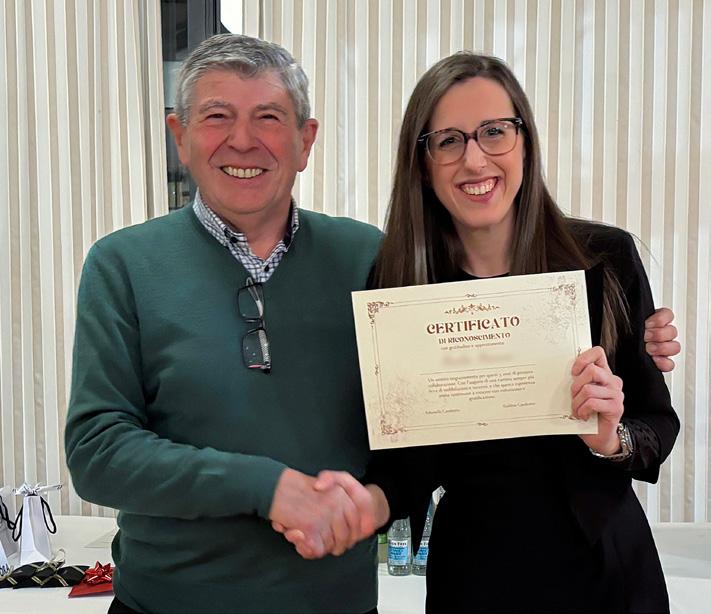
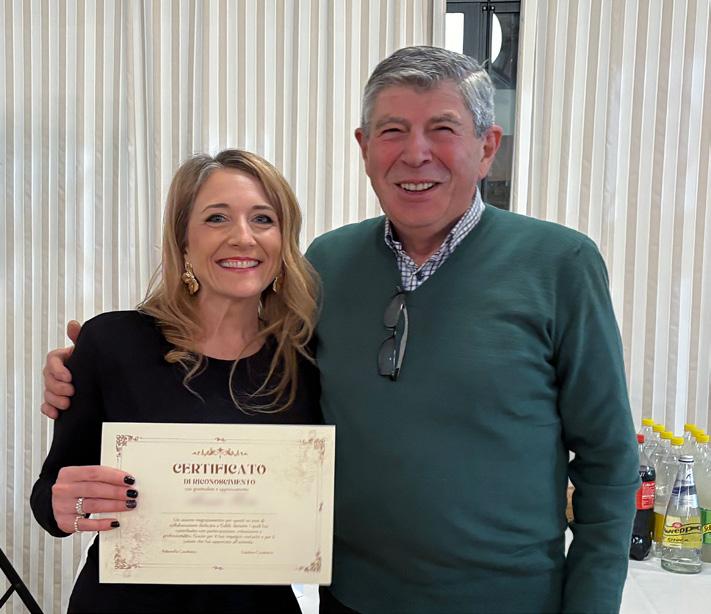
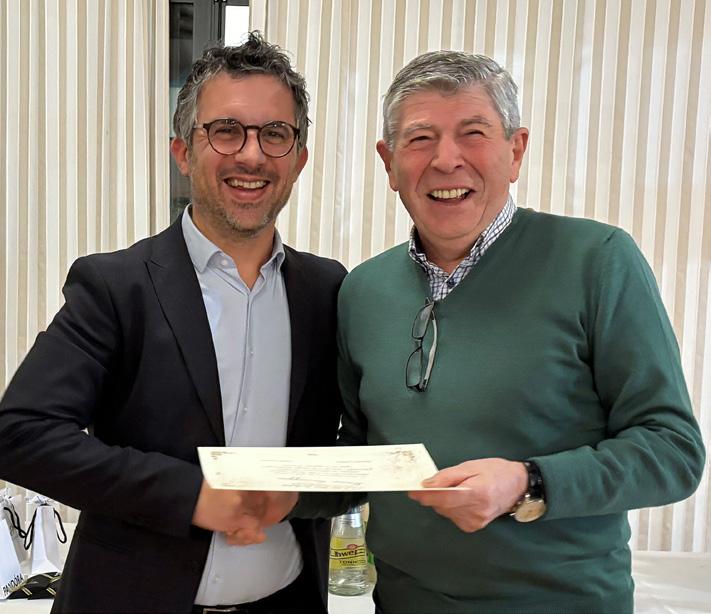
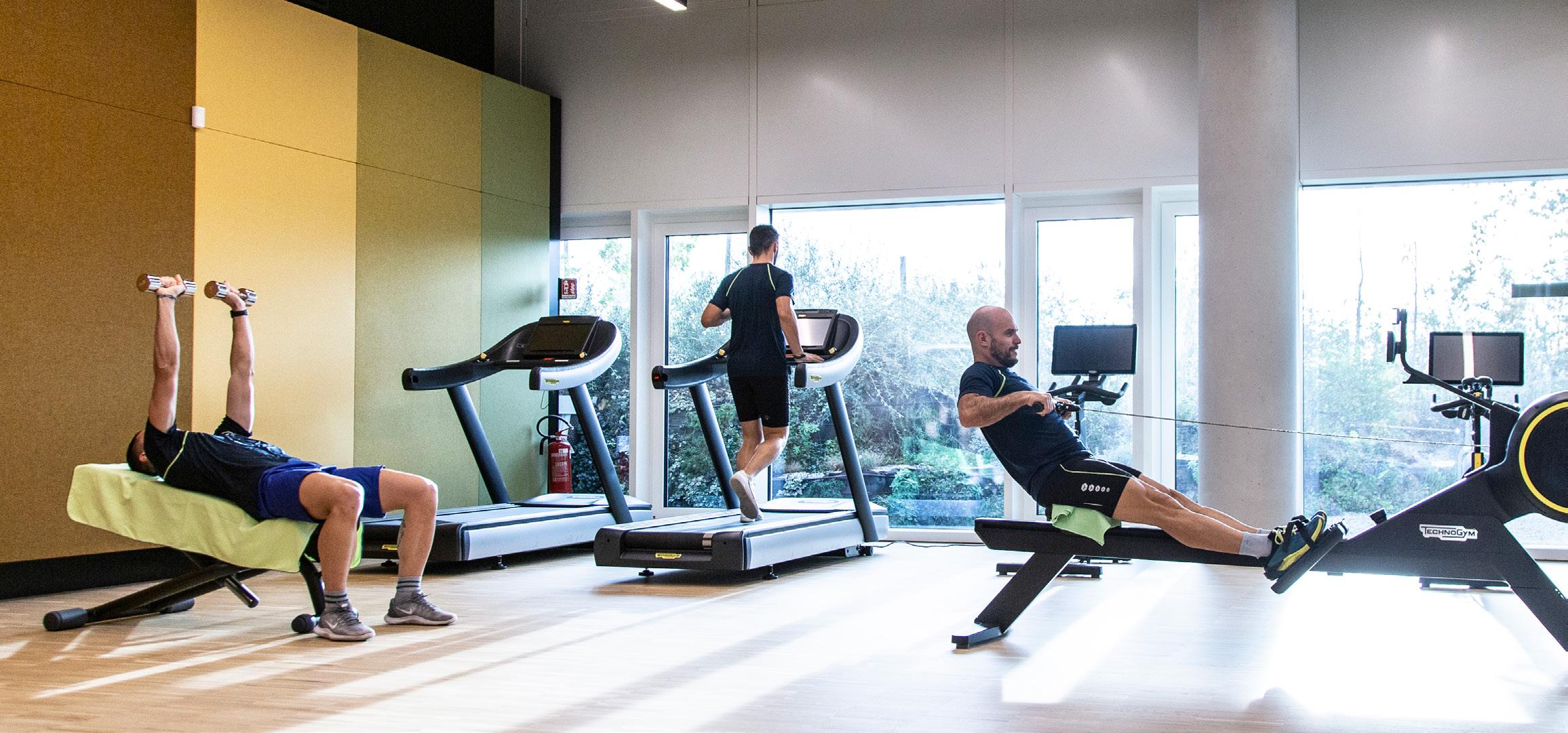
AREA
Galdi cares about the mental and physical well-being of its employees, which is precisely why it provides them with a Fitness Area within Galdi Village. The Fitness Area is free access, and courses are offered by the company, such as pilates, functional training and a course based on Mindfulness practice. These classes allow mind and body training for anyone who feels the need. In the central opening hours of the gym (12:00 noon to 2:00 p.m.) for two days a week, there is a Personal Trainer who accompanies people in specific personal or free-body paths with the Pilates/Postural class. Also for two days a week, in the evening time slot (5:15 p.m.-6:45 p.m.) there is a Personal Trainer dedicated to Functioning activities, customized according to people’s needs. The Mindfulness project , which started in 2022 to offer an alternative proposal to the classic training in the fitness area, has also been renewed in 2024 through the creation of 2 groups, one with 8 participants and the other with 9 participants per group, to give new course enrollees the opportunity to gradually fit into the project and activities.
The goals defined during 2024 and in the previous report were achieved thanks to the folowing :
• The increase in employee enrollment in the company gym . On average during 2024, the gym had 10.2 members, with a peak of 17 workers enrolled in March. This initiative has been well received especially by new employees;
• Renovation of gym equipment . In particular, pilates rollers were included, dumbbells were renewed with the inclusion of 12 kg, 14 kg and 16 kg weights;
• Renewal of courses dedicated to employee wellness within the mindfulness project ;
• Inclusion of a second table for tennis table for recreational activities during lunch break.
A doubles tournament was organized in 2024 with an award ceremony for the winners and an aperitif afterwards .
GALDI VILLAGE - BISTROT
Attention to the health and well-being of workers also comes through nutrition. This is why the company Bistro, from the design phase of Galdi Village, was created with a kitchen that allows all meals reserved for Galdi employees and visitors to be prepared and cooked on site.
The food service provider prepares a varied menu that is attentive to nutritional claims as well as the special dietary needs of certain employees . All employees have access to the Bistro, with the possibility of purchasing the meal at a subsidized rate. In 2023, the Too Good to Go platform was introduced to the company, which originated in Denmark in 2015 and to date is the leading anti-waste food app in Europe.
Thanks to this in 2024 it was possible to “save” from waste 99 meals . In 2024, days dedicated to promoting proper nutrition and conscious use of resources were organized . For this reason, the possibility of pre-booking Menus to avoid waste was implemented. Theme days were also defined, such as poké day, detox day, etc... Finally, also in 2024, an informational moment was organized with the presence of a nutritionist who offered advice to employees regarding proper nutrition
99 meals saved

GALDI VILLAGE - FITNESS
6.3 TRAINING AND HUMAN CAPITAL DEVELOPMENT
Galdi has a dedicated procedure for managing human resources processes and a Code of Ethics , published on the company website. This outlines the company’s commitment to workers and the protection of fundamental Human Rights . Within the company’s Code of Ethics, Galdi defines its HR commitment to the following aspects:
• Compliance with current regulations on working hours, ensuring that they comply with the laws of the country in which it operates. The company is committed to ensuring that the needs of workers are respected at all stages of their employment, including the various facets of life such as maternity, paternity, and personal and family health issues;
• Commitment to ensure adequate remuneration, at least equal to the mandatory national minimum wage, to ensure that employees are rewarded fairly for their contributions, according to each person’s levels, skills and responsibilities;
• Guarantee for the right to free association in labor organizations, recognizing the fundamental value of the individual right enshrined in major international conventions and national laws;
• Not using or encouraging child labor;
• Not making use of any form of forced labor, bonded labor, and refrain from any behavior that resorts to threats, use of force, and/or any form of coercion, seizure, intimidation, retaliation, or abuse of power for the purpose of exploitation of any person;
• Avoiding any form of discrimination based on age, ethnic and racial origin, nationality, political opinion, religion, gender, union membership, and health status.

The company has created an employee performance appraisal process , in collaboration with the various managers and management, with the aim of defining career-related developments. The goal for 2025 will be to fully formalize this process through dedicated forms and procedures . For all new hires there is an onboarding program with the aim of facilitating their integration and promoting their engagement.
As part of the “Positive Chemistry” project, in 2023 the company conducted an internal satisfaction analysis by anonymously interviewing employees through a survey focused on two relevant macro-areas: the level of satisfaction and involvement and the level of maturation of Galdi seen as a positive organization. Subsequently, the results achieved were shared with all employees.
Galdi has always seen training as an indispensable element of good business management. The category that benefited from the highest average number of training hours was office workers.
On average, men performed 16.6 hours of training, compared to 30.9 for women. Overall, workers took 19.3 average hours of training in 2023.
During 2024 Galdi invested in upgrading the skills of its staff, offering a total of 1,777 hours of training , divided into 340.5 hours of mandatory training for health and safety issues (Legislative Decree 81) and 1,436.5 hours of non-mandatory training. The company offers professional development opportunities both internally and externally to the company. Overall, 82.7% of employees have received training activities. It should be noted that during 2024 only 19.2% of the training provided involved mandatory health and safety training, indicating that the company invests in training even when it is not strictly required by law.
The remaining training hours provided involved on-the-job training and other types of cross-cutting training, such as:
Soft skills training; Language training conducted in groups for English and German;
Sustainability training on the 2030 Agenda for all employees; Cybersecurity training;
Training in the u se of specific work equipment for some business areas;
Targete d training about the impact of new technologies related to artificial intelligence (AI) contextualized to everyone’s work with related benefits and risks.
All of the above training activities were goals set within the previous Sustainability Report
In addition, regarding the issue of sustainability, the company participated in discussion tables and in Sustainability Week, organized by Confindustria Veneto East, where it talked about the initiatives it implements in the company.
The social dimension of sustainability also translates into the relationship that a company has with its territory, on which it generates an economic, social and environmental impact. Galdi has always maintained its commitment to the territory by giving direct and indirect support to projects, realities and activities committed to social issues and working in favor of the Community. As described within its Articles of Incorporation, the fourth purpose of common benefit expressly refers to Galdi’s attention and commitment to its territory.
6.4 SUPPORT AND ENHANCEMENT OF THE TERRITORY School Visits
176
18
The company strongly believes that contributing to the development and growth of the community in which it operates is a fundamental added value in the company’s sustainability journey. For this reason, generating a positive impact becomes critically important in the company’s path of growth and development. Below is a table summarizing the participants, in-person and online, of the events and initiatives for the area the company has joined or directly organized.
students
teachers
Events
(sustainability and digital)
335 participants
PROJECT “SUSTAINABLE ECO-NETWORK BY
RICREARTI”
The “Sustainable Eco-Network” project, aimed at member companies of Confindustria Veneto Est, is designed and implemented by Ricrearti in order to combine the worlds of art, social and industry according to an innovative perspective . The project networks companies sensitive to these issues by proposing the cross-reuse of waste so that it can become new resource translated into artistic, craft or functional objects.
A new perspective that is in line with the UN Agenda 2030 . The potential of this system makes it possible to create objects that are always different from each other. The Eco-Network is an opportunity to create cross-synergy among entrepreneurs, promoting “business culture.” For the realization of the prototypes, Ricrearti has involved a number of associations and organizations in the area that take in people who are disadvantaged in various ways. It is a training pro -


ject under which new creations are brought to life using elements no longer needed for business production but also obsolete communication material such as catalogs, brochures, pvc of billboards.
Galdi participated in the project, which was first exhibited at Confindustria Veneto East’s Sustainability Week in 2022. At the end of the event, the exhibition became traveling to some of the participating companies. Galdi decided to actively participate in the project , hosting at Galdi Village a tour stop that took place in 2022/2023. Between October and December 2024, the company hosted the eleventh tour stop of the 2024/2025 tour, in line with what is described within the IV common benefit purpose: “To promote the culture of beautiful and beauty, including by ensuring support for cultural and social initiatives, and the enhancement of the territory.” Visits, including school visits, and farm events were organized on this occasion.
PROJECTS WITH LOCAL SCHOOLS
Galdi has always believed in the contamination and exchange of ideas, experiences and skills as moments of personal and professional growth. The organization has opened its doors to schools with company tours, actively participating in projects involving students and company employees, and hosting events at Galdi Village . In 2024, Galdi hosted visits from Italia middle (scuole medie) and high schools for orientation purposes and with the aim of gaining an understanding of sustainability and the way the company operates. In total, there were 176 participating students from three local colleges.
INFORMATION TECHNOLOGY AND PROJECT MANAGEMENT
The “Information Technology and Project Management” project is promoted by the BIT Club of Confindustria Veneto Est, a community of IT managers from manufacturing companies, with the aim of increasing through opportunities for training, comparison and sharing, the network of IT knowledge in companies in the area, with constant collaboration with the world of education . Ended in May 2024, the project involved 14 students from the 4th grade of the Liceo scientifico Giorgione high school in Castelfranco Veneto, applied sciences course.
The young people, divided into teams, challenged each other, in the creation of project charters and mockups-that is, everything that precedes the creation of an app-for an application aimed at helping users reduce their environmental impact and adopt a more sustainable lifestyle.
This is an educational-experiential path for students, who can develop transversal skills and receive specific training on project management methodology, developing a project work in the IT field with commissioning and mentoring from outside the School. Galdi, represented by its Information Technology Team, participated as an external tutor for the students, following them through the various stages of the project.
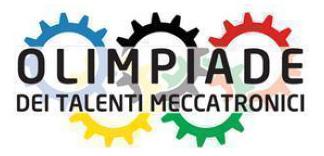
Now in its eighth edition in 2023-2024, the Mechatronics Talent Olympiad is a team competition created to stimulate ingenuity and develop interdisciplinary skills, as well as an aptitude for teamwork . Aimed at technical and vocational schools, the project is promoted by the Metalmechanics Group of Confindustria Veneto Est. The course involved 156 students from 19 technological and professional institutes in mechanical and mechatronics, electrical and electronics, information technology and automation in the provinces of Padua, Treviso, Venice and Rovigo, and from ITS Mechatronic Veneto. Galdi contributes to the project by collaborating on contest design and as a member of the judging panel.
The company has also joined the ninth Mechatronics Talent Olympiad, which started in November 2024 and ends in March 2025.

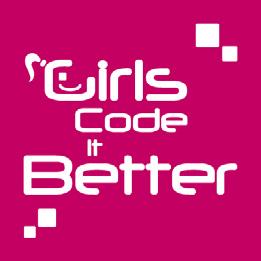
For the third consecutive school year in 2024-2025, Galdi has confirmed its membership in the Girls Code It Better project: a digital creativity and entrepreneurship club with the goal of bringing high school girls closer to STEM skills , which are still considered primarily male.
Since 2022, the company has been supporting the annually renewed Club at the Liceo Scientifico Marcantonio Flaminio high school in Vittorio Veneto, which 20 girls from the third and fifth grades have joined for the 2024-2025 edition. The new challenge facing the girls is: rethinking the human-machine interface (HMI) of the latest Galdi packaging machine.
In June 2024, the girls who participated in the Club during School Year 2023-2024 presented the output of their work to the company. Starting with a theme assigned by the company, the girls, divided into groups, collaborated on a plurality
of issues: urban pollution, waste collection, sustainable transportation, urban green, microplastics, eco-design, and sustainable jobs.
Some examples of the work done:
• One group designed a website designed as a platform to connect companies and professionals in the field of sustainability.
• Another group envisioned the figure of the mobility manager for the company, hypothesizing sustainable hydrogen-powered transportation sources in the future.
• On the topic of bioarchitecture/ecodesign, a team designed a building for the company made with the best sustainable systems (photovoltaic panels, irrigation of plants with rainwater, etc.). Of course, without forgetting dedicated relaxation environments for employees, also designed with sustainable materials.


During the 2023-2024 school year, the project “EUREKA! WORKS!”, promoted by Federmeccanica with the purpose of orientation to technical and scientific culture has reached its 12th edition. The project takes the form of a contest through which children have the task of conceiving, designing and building a real toy, starting with a kit provided by Federmeccanica containing various materials. In this initiative, aimed at children in the third, fourth and fifth grades of primary schools, Galdi participated through the evaluation of the final projects proposed by the students of the Istituto Comprensivo di Paese (TV). Twenty-four students from the “O. Visentin” Primary School in Postioma participated in the project. The students were confronted with the theme of mechanics. The company will also participate in the project for the year 2024-2025, and the theme the children shall have to deal with is magnetism.


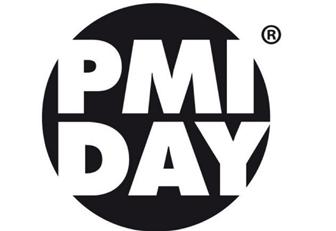
Promoted by Confindustria Piccola Industria, SME DAY aims to introduce new generations to how manufacturing is done and to transmit the passion and skills of the manufacturing world . The activity takes place through educational visits with schools: a day in which companies open the doors of their factories to tell their stories and explain their daily commitment to future growth, in places where employment and well-being are generated for the entire community.
During the 2024-2025 edition of the project, in November 2024 Galdi hosted two third classes for a total of 40 students from the Istituto Comprensivo of Quinto di Treviso.
OUTDOOR CLASSROOM, IN NATURE YOU LEARN BETTER
On June 3, 2024 Galdi was pleased to inaugurate at the Istituto Comprensivo “C. Casteller” (Comprehensive School) in Paese (TV) the Outdoor Classroom, a new outdoor space dedicated to children. The initiative was conceived by the local Boys and Girls Municipal Council and implemented with the participation of the school and local government, as well as the support of Galdi and YCO, a well-known local company. This synergy has resulted in a place designed to experiment with new ways of learning and to offer children manual activities and courses in collaboration with other local businesses

EVENTS IN THE FIELD OF SUSTAINABILITY EVENTS IN THE DIGITAL SPHERE
Galdi staff are actively involved in organizing and managing events that have culture, sustainability, and innovation at their core. During 2023, Galdi Village hosted several conferences and training events, as well as the aforementioned “Girls Code It Better” project. Events that Galdi has organized or co-organized and participated in include the following:
Packaging between Intellectual Property and Sustainability
The event focused on the challenges facing packaging manufacturers today-between creativity, innovation, and sustainability-with particular attention to intellectual property and patent management.
Sustainable supply chain: winning relationships
An afternoon dedicated to sustainability to increasingly engage Galdi’s supply chain in the pursuit of responsible and sustainable goals.
An opportunity to also share sustainability initiatives, such as Debora Basei’s Ricrearti project and the Sustainable Eco-Network exhibition.
SUSTAINABILITY WEEK
In 2024, Confindustria Veneto East event focused on business sustainability and featured a Galdi team member who brought to the attention of participants initiatives and measures related to the company’s environmental sustainability. Since 2022, the year the project was founded, Galdi has actively participated in Sustainability Week, speaking among the speakers. The topics exhibited over the years have been diverse, from product-related sustainability to environmental sustainability to welfare. The company has decided to renew its participation in the event for the 2025 edition as well.
DIGITALmeet - Transition 5.0 and Generative Artificial Intelligence
This year Galdi Village hosted two events with themes Transition 5.0 and Generative Artificial Intelligence applied to servitization.
The goal of the initiatives was not only to inform about the latest developments in digital and technological terms but also to create a moment of dialogue and contact between the companies and with the territory.
Doing Business in a 5.0 company. What changes for Businesses and Stakeholders?
The event took the form of a panel discussion bringing together several testimonials from companies, including Galdi’s.
Central theme is the transition to Company 5.0 for Small and Medium Enterprises, between digitization and ESG, between opportunities and strategic actions.
COMPANY VISITS
In 2024, Galdi Village also opened its doors to guided tours, such as the one of the Sustainability Group of Confindustria Veneto Est. The meeting involved contact with business realities from different sectors, with the aim of creating opportunities for shared improvement in terms of corporate sustainability. A program of activities to develop in companies and in our area culture and awareness related to sustainability issues. A project that brings together different actors from the Provinces of Treviso, Padua, Venice and Rovigo, creating a valuable network between entities, companies and institutions.
In 2024, there was also a visit to a couple of companies for a training discussion on different topics: ESG and leadership. An opportunity to compare and exchange know-how between companies: because good practices and sustainability must be shared!
LIBERAL DONATIONS
Galdi has long supported local associations every year. In 2024 a collaboration was undertaken with the municipality, the YCO company and the country school to create the “ Outdoor Classroom ” in the school garden.
Even in 2024, the company joined Social Day, an experience of active citizenship and volunteerism of the younger generation , as part of which Galdi hosted two girls from I.S.I.S.S. G. Verdi in Valdobbiadene. This is a morning in which the young people engage in carrying out work/ activities in the area, allocating the proceeds of their efforts to national and international cooperation projects, networking with other groups in the country.
Some Galdi employees have also participated in popular events through educational/informative interventions toward schools and the public. These included speaking for the Confindustria Veneto Est project “What is being done in the company?” aimed at schools, and the participation of two Galdi employees in “Linux Day,” where they addressed a university audience.
07 Environment
A daily commitment
We promote sustainability in every area of business - this is Galdi’s approach
Continuous improvement is a fundamental principle at Galdi, especially when it comes to its own environmental impact. Its commitment to trying to shed light on its environmental performance is reflected in its adherence to the ISO 14001:2015 Certification Standard . The path to sustainability is challenging; nevertheless, it is incumbent upon us to strive to protect the Planet by taking appropriate measures to mitigate our own impact. Galdi aims to monitor and improve its environmental impact even in the small daily gestures that prove crucial in the long run
As part of its activities, Galdi is committed to responsibly using all raw materials, associated processing materials and packaging used for packaging through dedicated projects resulting in the careful selection of raw materials and the adoption of efficient production processes. This is aimed at minimizing waste. The company has an Environmental Policy and the commitment to the environment is also stated within the company’s Code of Ethics and in the Corporate Bylaws, in the second purpose of common benefit. An overview of some highlights referring to the environment area for the year 2024 can be viewed in the following table.
SDGs HIGHLIGHTS ENVIRONMENTAL DATA YEAR 2024

Water used in Galdi Village that returns to the aquifer in the same condition as it was taken , thanks to a phyto-depuration system
Electricity purchased from the grid deriving from




2 emissions from natural gas use offset by gas provider
Tons of CO 2 e by direct emissions of CO 2 (scope 1) 105,6

7.1 ENERGY MANAGEMENT
Digitization plays a key role in active energy management and efficiency of buildings and business processes. The integration of smart devices into electrical systems and the use of energy management software makes it possible to improve the energy efficiency of energy-related processes . For this reason, during 2023 Galdi installed a power management system from Schneider Electric with the following goal:
Monitoring energy use in buildings with daily consumption monitoring at 15-minute intervals;
Proactively detecting “abnormal” energy consumption;
Reducing energy-related costs.
The energy sources used within the organization consist of electricity used for the production process and in the offices, natural gas used for heating in the winter months, and diesel fuel and gasoline used to power the company’s vehicles. Electricity is also self-produced thanks to the presence of photovoltaic panels.
The table below shows the organization’s internal energy consumption in Gigajoules (GJ) for the years 2022, 2023 and 2024, broken down by type of energy source. The data include consumption of natural gas, gasoline, diesel, and electricity purchased from the grid, as well as self-generated electricity.
Overall, total domestic energy consumption decreased by 3.8 percent in 2024 compared to 2023 . Please refer to the following pages for more details regarding the actions that led to this decrease.
Analyzing the various energy sources, electricity purchased from the grid decreased by 12 percent in 2024, compared to 2023, while natural gas saw a decrease in 2024 of 2.5 percent. The reduction in natural gas consumption is mainly due to the mild weather, which has allowed for changes in boiler on/off schedules with a view to saving energy.
ENERGY CONSUMED WITHIN THE ORGANIZATION (GJ)
conversion factors used for fuels: Defra UK GHG conversion factors. Fuels were converted
The histogram below shows the breakdown of the Organization’s energy consumption divided into electricity (purchased from the grid, self-gener-
ated and self-consumed), natural gas (used for heating), and fuels (diesel and gasoline) used to power company vehicles.
The table below shows the trend in the organization’s total energy consumption (GJ) as a ratio of turnover in Millions of Euros and hours worked. It is possible to observe a stable downward trend
over the three-year period for both indices, which highlights the positive impacts of the measures taken by Galdi to improve its energy performance.
KPI: ENERGY INTENSITY IN RELATION TO TURNOVER AND HOURS WORKED IN THE THREE-YEAR PERIOD 2022-2024
Regarding energy efficiency improvement activities, it should be noted that during 2023, Galdi replaced a traditional machine in the compressor area with a new inverter machine, resulting in improved energy efficiency. In conjunction with the installation of the new machine, the compressed air emission system was modernized by checking and testing each individual connection point to investigate for leaks. This inspection reduced the number of machine start-ups that can cause compressed air leaks and led to a 20 percent reduction in the specific energy consumption of the plant . In 2024, an internal project was initiated through power management software to optimize the shutdown phases of lighting points and machinery not in use with the aim of further limiting energy waste. An internal project was also started to use energy mainly in F2 and F3 bands resulting in cost optimization.
Photovoltaic systems enabled 248,606.6 kWh of energy to be self-produced and used internally in 2024.
In September 2025, work shall begin on the expansion of the production area, with the goal of LEED ® certification of the new production complex. A photovoltaic system with a capacity of about 100 kW shall be installed leading to the increase of the percentage of self-generation of energy in the total.
In 2025, it is expected that energy consumption may increase, both because of the presence of the yard and because of testing on a new machine model, the RG480, to be tested during the first half of 2025.
ENERGY CONSUMED INTERNALLY
7.2 CLIMATE STRATEGIES
Galdi is concretely committed to reducing the environmental impact of its activities through an integrated strategy and a series of measures aimed at reducing GHG emissions into the atmosphere, such as:
Self-production of energy from renewable sources: Galdi enhances natural resources to generate clean energy, reducing dependence on traditional sources and actively contributing to the energy transition;
Purchase of certified 100% renewable electricity : the energy provider used by Galdi provides electricity guaranteed by the Gestore dei Servizi Energetici (GSE) with Guarantees of Origin: a certification that tracks energy produced from renewable sources;
Use of 100% Gas Offsets CO 2 : the provider chosen by Galdi offsets 100% of the CO 2 emitted by the gas used by Galdi. This is done by purchasing and canceling certificates (carbon credits) generated by sustainable development projects that reduce global carbon dioxide emissions and are certified by leading international accredited organizations Verra and Gold Standard;
Implementation of energy efficiency actions: Galdi continuously invests in innovative technologies and processes to optimize energy use, improve operational efficiency and reduce waste.
This approach reflects Galdi’s commitment to sustainability and continuous improvement, with the goal of contributing significantly to the fight against climate change.
This section contains details on the impacts related to Galdi’s GHG emissions and the methodologies and accounting processes for direct Scope 1 and indirect Scope 2 GHG emissions. Total GHG emissions are expressed in tons of CO 2 equivalent, using the conversion factors given in the note below the table.
Scope 1 GHG emissions come from own sources, including emissions from company and long-term leased vehicle fleets and from natural gas, used for heating. In contrast, GHG emissions from the generation of electricity, steam, heating, and cooling, purchased from third parties and consumed by Galdi fall into the Scope 2 category. On an absolute basis, CO 2 emissions decreased in 2024 by 7.8 percent considering the location-based calculation methodology and by 2.2 percent considering the market-based calculation methodology.
The graph below breaks down the percentage contribution of CO 2 emissions over the three-year period 2022-2024, considering the location-based methodology, with respect to Scope 2 (electricity purchased from the grid) and Scope 1 (fuels and natural gas). In 2024, the electricity-related contribution corresponding to 54.5 percent of total CO 2 emissions was avoided by purchasing 100 percent of electricity from renewable sources, as well as in previous years for the respective percentage share.
Looking at the graph, the three-year period sees the percentage increase in total CO 2 emissions from corporate car fuels. This is due to the inclusion of new company cars and the increase in liters of fuel purchased. It should be noted that several company cars have Mild Hybrid technology.
* Source: the sources of coefficients for the calculation of Scope 2 location based and market based are Terna and the AIB European Residual Mixes report, respectively. The coefficients needed for the calculation of Scope 1 are derived from the Defra UK GHG conversion factors. Gross CV was considered for the calculation of fuel emissions, and in its absence, Net CV.
SCOPE 1 AND SCOPE 2 LOCATION BASED COMPOSITION
FUELS FOR VEHICLES (diesel, petrol, LPG, methane)
FUELS FOR HEATING (natural gas, LPG, diesel oil )
ELECTRICITY
Below are the indices referring to Galdi’s emission intensity for the three-year period 2022-2024. As can be seen, considering the location-based methodology, the ratio of CO 2 to turnover reports a reduction of 21.0% in 2024 compared to the year 2023. In addition to the previous index, the ratio of
CO 2 to hours worked also decreased by 17.1% in 2024 compared to the previous year, again taking the location-based calculation methodology as a reference. The emission intensity indices related to the market-based calculation methodology also show a decrease.
7.3 WATER RESOURCE MANAGEMENT
Water consumption in Galdi is divided between the main office, where the production area and most of the offices are located, and Galdi Village, a building housing some offices, the Bistro and the Fitness Area. Water in Galdi Village is used for the company bistro, toilets and showers, while as for the main office, water is used not only for services but also within the production process, especially in the testing phase of machinery.
Galdi studied solutions to optimize water use in the testing phase of machinery, prior to its shipment and subsequent installation at customer sites. During testing, water recovery was improved by replacing the water system, piping and pumps for water recovery. The plant serves seven test bays and consists of two main conveyor belts where the packaging machines undergoing testing unload the manufactured cards. These then proceed to a shredder and a baler that compacts them into “bales,” which, conveyed to an exit belt, are picked up for storage pending pickup by the paper mill that shall recycle the material. Water taken from the local water supply passes through a water softener and feeds a first storage tank.
GALDI VILLAGE LEED CERTIFIED ® GOLD
The corporate headquarters reflects Galdi’s commitment to the environment; the 2,000-square-meter multipurpose building was awarded LEED ® v4 BD+C: New Construction at the Gold level in 2021, with an overall score of 65 points. LEED ® is a worldwide standard that defines the most stringent requirements for eco-friendly construction . The construction achieves high standards for air quality, thermal comfort, hygrometric comfort and lighting. In addition, the Galdi Village garden was designed by planting trees and shrubs that require little water for survival. Some of the features that enabled the facility to achieve LEED ® Gold certification were as follows :
• Air handling units equipped with high-efficiency heat recovery;
• Outdoor air flow rates according to Ashrae 62.1:2010;
• Sanitary equipment with reduced potable water flow rate;
• Rooftop Photovoltaic Panels;
• Roofing materials and exterior finish with high SRI (Solar Reflectance Index);
• Energy-efficient outer envelope;
• LED illuminated bodies and dimming of artificial versus natural light;
• Responsible site waste management and indoor air quality control while working;
• Indoor spaces with high benefit over outdoor views and natural light inputs;
• Use of materials with high recycled content and low emissions.
The first tank loads water into a second tank that, through a system of pumps, conveys it to the “cold line” intended to feed the machines. The packaging machines undergoing testing use this water to fill the cards, which once packaged, are discharged onto the main conveyor belts and sent to the shredder, which shreds them. The drained water passes through fabric filters installed below the shredder and is sent back to the second tank, thus creating a closed loop. A chlorine dioxide control and dosing system is installed in the loop to reduce the bacterial load of the recovered water. A valve system allows continuous recirculation of the water, even if the testing plant is not working.
Water within production processes is also used for cooling and lubricating the transport chain of packaging machines, spraying the mechanical parts with a fine spray. The chain may have residual lubricating oil, and in this regard a de-oiling and filtering system has also been installed in the line. The resulting water is discharged into a manifold connected to a collection tank and, through a system of pumps and tanks, sent to a sand and activated carbon filter, then flows into the final storage tank.
Water is taken by third parties from the ATS aqueduct, and additional control is carried out internally, especially on test water, with respect to its chemical and physical parameters. The following table shows the water consumption.
2024 2023
2022 2021
Galdi Village has a modern phyto-depuration plant that allows wastewater to return to the water table in the same condition as when it was taken . Specifically, once mechanically purified and pretreated, the wastewater reaches the phyto-depuration stage where biological purification takes place. The term phyto-depuration is used to define an aerobic type of biological treatment, that is, one that takes advantage of bacteria living in the presence of oxygen. The purification treatment takes place using the action of bacterial colonies attached and developed in the form of a film on the surface of the substrate filling the tanks as well as on the roots of the vegetation present.
In Galdi Village, the phyto-depuration system consists of an impermeable basin filled with appropriately selected drainage material distributed in overlapping layers . The phytodepuration system is supplemented by plants belonging to plant species, which have the function of partially absorbing the effluent and promoting the development of the bacterial colonies responsible for the purification process.
Distribution takes place on the surface of the plant through a network of perforated pipes, with intermittent feeding mode to promote oxygenation of the environment.
Protecting the surface of the phyto-depuration plant is a layer of aggregates that have the function of preventing the dispersion of the thermal energy of the effluent, the formation of ice on the distribution network during the winter months and the formation of unpleasant odors.
The aerobic environment thus constituted allows the establishment of a rich bacterial population capable of oxidizing and metabolizing organic matter and breaking down ammonia compounds. The result obtained is an effluent characterized by quality levels such that it can be discharged into surface waters according to current regulations. Discharge of the purified water is by gravity. The recirculation pump is controlled and operated by an automated electrical panel equipped with timers.
The following graph shows the index referring to the ratio of Galdi Village water withdrawal to the number of hours worked. The trend to be observed in the graph shows a steady decrease in the index over the three-year reporting period considered.
Galdi is located in Postioma di Paese (TV) in an area considered to be medium to high water stress (20-40%) according to the internationally recognized tool, and whose use is indicated by the GRI standards, Aqueduct Water Risk Atlas. As area considered to be water stress, it was decided to consider “High” and “Very High” water stress areas. Therefore, the area where the Galdi plant is located is not considered water stress.
WATER WITHDRAWAL IN RELATION TO TOTAL HOURS WORKED
In addition to the practices and measures already mentioned concerning water, it should be noted that activities related to the farm garden irrigation system were also maintained for 2024 with the aim of delivering the right amount of water to the plants, based on their actual water needs . All garden sprinklers were also checked and verified to replace the broken ones that were causing water waste. Finally, Galdi Village has flow meters installed for each faucet with the goal of limiting water delivery during use.
7.4 CIRCULAR ECONOMY
SOLUTIONS
The Gable Top, which has always been associated with fresh milk, is packaging with a gable top, that is, with the top folded to form a point. Patented in 1915, packaging of this type is created from individual sheets formed, filled and sealed by machines, making the packaging lighter, easily transportable and competitive with glass. Gable Top is usually intended for premium fresh and ESL (Extended Shelf Life) products, both with cold
chain and ambient distribution, but because of its special features it has also been chosen as an innovative package for many other foods such as fermented products, liquid eggs, and powdered products.
Regarding actions taken by the company in circular economy, the following should be noted:

Cellulosic materials used in the company-wipes, toilet paper- are derived from direct recycling of Gable Top cardboard. Galdi contributes to the recycling of waste cardboard as bales of shredded product from the testing stage are sent to a paper mill that handles the recycling of this type of material
For personal consumption of drinking water in the company, dispensers have been installed to which all employees have access free of charge, with the aim of discouraging the consumption of plastic bottles in favor of reusable water bottles. In addition, within the vending machines in the company, water can only be purchased packaged inside FSC-certified Gable Top cardboard. The same measure also applies to water offered to customers and visitors in Galdi
At Galdi, in accordance with Directive 2009/904, which relates to reducing the impact of certain plastic products on the environment and whose Article 6 became mandatory in July 2024, all containers covered by the legislation have been adapted to the specifications required by the legal text. With a view to a better understanding of the management concerning the process and the material of which Gable Tops are composed, some of the organization’s contact persons visited some paper mills in Veneto. They observed and evaluated the recycling process of the Gable Top. The initiative took place with the hope of stimulating the generation of ideas and proposals related to the containers in use at Galdi, always with a view to continuous improvement of its environmental impacts
Regarding the Gable Top disposed by the company, some indices are given in the table below.
2024
Of which: Purchased from corporate vending machines (no. of pieces)
Of which: Purchased from suppliers (no. of pieces)
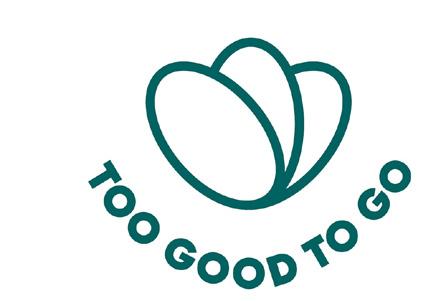
The organization’s willingness to apply sustainability requirements within the main aspects of its business is also reflected in the initiative involving the company’s Bistro. In fact, Galdi has been using the service offered by Too Good To Go International since 2023 . The service allows any user of the digital platform of the same name to purchase food that has not been distributed during lunch at highly subsidized prices. The platform has recorded several orders for meals that would otherwise have gone to organic waste collection, thus avoiding the emission of CO 2e resulting from food waste.
Specifically, during 2024 “distributing” 99 surprise bags avoided 270 kg of CO 2 emissions into the atmosphere (Source: Too Good To Go, The Environmental Impact Equivalency Calculator).
Galdi is committed to reducing the impact on the environment of packaging used in the company for shipping filling machines and spare parts. For shipping filling machines, the company uses PEFC-certified wooden crates and for some spare parts FSC-certified packaging.
7.5 WASTE MANAGEMENT AND REDUCTION
Galdi aims to manage and minimize the generation of waste and to manage the waste it produces responsibly. This chapter outlines the strategies and actions implemented by the company to effectively address the waste challenge, reflecting Galdi’s ongoing commitment to environmental sustainability.
In accordance with the ISO 4001-certified Environmental Management System, waste management for Galdi is not only a regulatory requirement but also a tangible opportunity to improve the sustainability of its production processes by reducing inefficiencies and waste.
The Company has mapped the flow of processes for which waste is generated, from the entry of raw materials to their transformation into machinery and the subsequent generation of waste. Dedicated collection areas have been defined in the Company for waste storage, both in the outdoor area and in the indoor area of the plant , where waste is separated based on the type of material. Waste generated by Galdi is mainly represented by:
Waste from the production process, mainly metal scrap and electronic material;
Papermaking materials and wooden pallets used for the procurement of raw materials and semi-finished products;
Water from the functional tests carried out on the machinery.
The Company keeps track of the amount of waste generated, and the data collected are kept in a logbook to enable monitoring by the relevant functions . All copies of the relevant forms are filed as required by current regulations. All waste generated by Galdi is managed by third parties (external sites). Galdi ensures that these
suppliers are qualified and comply with contractual and legal waste management standards and regulations through the adoption of specific practices that allow annual verification of compliance with these obligations, thus ensuring that waste is managed responsibly and in accordance with regulatory requirements. In 2025 Galdi will be subject to the implementation of the National Electronic Registry for Waste Traceability (RENTRI).
As for the offices, Galdi has implemented a system of separate collection according to the different types of waste generated. Increasing awareness on the proper collection and separation of waste was implemented through the execution of an ESG training course for workers, held during 2024, which also aimed to raise employees’ awareness on issues related to the proper separation and delivery of waste to promote its subsequent recycling.

During the year 2024, Galdi generated a total of 132.5 tons of waste. 10.9 tons of these were destined for disposal, while 121.6 tons were destined for recovery. In addition, 10.9 tons of hazardous waste was managed. The significant change in the amount of hazardous waste generated is due to extraordinary mainte -
nance activities of stormwater disposal network services, which produced a higher amount of hazardous (oily water) and non-hazardous (non-hazardous water) waste. In addition, a higher amount of non-hazardous waste was also generated from the maintenance activities performed.
With respect to the three-year reporting period, the following graph shows the percentage breakdown of waste generated by type (hazardous and
2024 2023 2022
HAZARDOUS intended for recovery
HAZARDOUS intended for disposal
NON-HAZARDOUS intended for recovery
NON-HAZARDOUS intended for disposal
The following table shows some waste-related KPIs over the three-year period 2022-2024, such as the percentage of waste going to recovery out
of the total and the percentage of hazardous waste generated out of the total.
2024 2023 2022
Among the actions implemented by the company to reduce waste, it should be noted that an enzyme-powered parts washing machine has been in use for some years now, which has made it possible to eliminate the use of hazardous, polluting or flammable chemicals in favor of a VOC-free (Volatile Organic Compounds) cleaning compound acting at the biological level, breaking down grease and residues, without attacking materials and ensuring greater cleanliness. Some products used for cleaning the machines have been replaced;
nonhazardous) and final destination (recovery or disposal).
in particular, thinner has been discontinued in favor of acetone, which is also safer for the operator’s health. The rags used for cleaning are washed and reused, thus avoiding excessive consumption of paper, which would then be destined for unsorted collection. Mats placed under the fillers during testing and used to absorb any oil droplets and prevent them from spilling on the ground are also washed and reused. These services are provided by a specialized company.
08 Objectives
QUALITATIVE OBJECTIVES
WITH RESPECT TO THE AIMS OF COMMON BENEFIT



Purposes of common benefit:
A concrete and transparent commitment to environmental protection
Objective
Replacement of at least one gas boiler with heat pump 2027
Completion of production area expansion project with LEED ®certified building 2026
Increase of 100 kWp for the construction of the new photovoltaic system 2026
Training and awareness on proper energy-saving practic-es during the M'Illumino di Meno 2025 event 2025

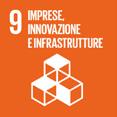
Purposes of common benefit:
Constant attention to innovation and sustainability of processes to make products that are ethical, quality, safe and effective
Objective
Review of general purchas-ing conditions and con-tracting for direct material suppliers

Purposes of common benefit:
Promote the culture of beautiful and beauty, including ensuring support for cultural and social initiatives, as well as the enhancement of the territory
Maintaining at least 4 local community and local area support projects



Purposes of common benefit:
Ensure the well-being of workers, their families, and the community through the development of initiatives that promote skill growth, awareness and dissemination of healthy lifestyles, and the principles of respect and diversity
Repurposing of training ac-tivities on information se-curity 2025
Maintenance of English, German and in addition French language courses 2025
Training on 231 issues , with particular focus on anti-corruption and Code of Eth-ics 2025

Purposes of common benefit:
Transversal to the four purposes of Common Benefit
Reassessment of business impact through the B Impact Assessment
QUANTITATIVE OBJECTIVES WITH RESPECT TO THE MATERIAL THEMES AND GOALS OF COMMON BENEFIT
Purposes of common benefit:
Constant focus on innovation and sustainability of processes to make products that are ethical, quality, safe and effective
Purposes of common benefit
Percentage of sales reinvested in R&D
Number of connected packaging systems out of total plants equipped with the IoT infrastructure
Average MME (Machine Mechanical Efficiency) monitoring of related packaging systems.
than 5%
5%
than 30%
Creation of a dedicated indicator in order to monitor process efficiency Gain internal time efficiency of 10% in as-sembly functions and 20% in test-ing functions
of spending on suppliers located in Italy
of spending on suppliers located within 80 km of company headquarters
efficiency gains of 10% in the assembly process and 15% in the testing process
Purposes of common benefit: A concrete and transparent commitment to environmental protection
energy used within the organization that is derived from
Energy intensity index: total energy consumption (GJ) of the organization in relation to turnover in Millions of Euros
Overall reduction in electricity consumption compared with the
CO2 emissions from natural gas use offset through the energy supplier.
Reduction in CO2 emissions in-tensity ratio, location based: calculated as tons of CO2 in relation to Mln $ of turnover
intensity index Mar-ket Based methodology
Percentage change in water withdrawal from previous year Maintaining the reduction (1,9%
Ratio of Galdi Village (ML) wa-ter withdrawal to hours worked. Not exceeding
of waste destined for recovery out of total waste generated
of hazardous waste generated out of total waste generated
Purposes of common benefit:
Ensure the well-being of workers, their families and the community through the development of initiatives that promote skill growth, awareness and dissemination of healthy lifestyles and the principles of respect and diversity
Purposes of common benefit
of recordable occupation-al injuries (employees)
Rate of occupational accidents with serious consequences
Purposes of common benefit: Transversal
Purposes of common benefit:
Promoting the culture of beautiful and beauty, including ensuring support for cultural and social initiatives, and the enhancement of the territory
Purposes of common benefit
Methodological note
This methodological note offers the essential tools for interpreting the contents of this third Galdi S.r.l. Sustainability Report and aims to equip the reader with the resources needed to navigate the report’s landscape. This includes measurements and indicators identified, elaborated and illustrated with reference to the GRI standards, adopted for the drafting of this document. Specifically, it includes the principles outlined in GRI 1: Core Principles, GRI 2: General Disclosures 2021, and GRI 3: Material Issues 2021.
The purpose of this Sustainability Report is to report on Galdi’s performance with regard to the three ESG areas (Environment, Social, Governance) and to decline the material issues identified as most relevant to its business context, as well as the specific Common Benefit goals included within the Company’s Bylaws. At the end of this document there are also two tables containing one the qualitative objectives and the other the quantitative objectives the Company aims to achieve, also with reference to the achievement of the Common Benefit goals included within the Corporate Bylaws.
This Document refers to the reporting period from January 1, 2024 to December 31, 2024. Where possible, information within the Sustainability Report has been provided with a comparison in re -
lation to fiscal year 2022 and 2023. The reporting boundary is the company’s Headquarters, located at Via Enrico Fermi 43/b - 31038 in Postioma di Paese (TV). The organization operates in Italy where it owns the only production site and is present in the markets of the United States, Morocco, and Russia through three “Strategic Business Units.” The company prepares and publishes the Sustainability Report annually and the reporting period coincides with the one of the financial report. Galdi declares that this Sustainability Report has not been subjected to the assurance process by any external relevant bodies. The “GRI Content Index” table provides evidence of the coverage of GRI indicators associated with each sustainability theme reported in this document. This option provides the most complete view of the significant impacts on the economy, environment, and people related to the business. The information reported in this Report is intended to show the organization’s commitment to sustainable development.
The document follows the core principles for reporting according to GRI 1: Core Principles: Accuracy, Balance, Clarity, Comparability, Completeness, Sustainability Context, Timeliness, Verifiability. To quantify impacts on the environment, conversion factors provided by DEFRA UK were used, while to assess energy using the mar-
ket-based and location-based approaches, information provided by Terna and the AIB European Residual Mixes report was leveraged. A multiplicative coefficient of 1,000,000 was used for calculations related to accident indices.
It is specified that any revisions made to the information in this report are appropriately noted and commented in the body of the text of this document. Specifically, compared to the previous report, the waste data for 2023 and 2022 have been changed because in the previous years, in-load quantities were considered and not those conferred to third parties. Starting from 2024, the actual quantities delivered to third parties were considered. Therefore, this approach was also used for the years 2022 and 2023 by changing the data reported in the report.
This document has been approved by the Board of Directors of Galdi S.r.l. For any information referring to the contents of this document, please contact the Impact Manager at the following e-mail address: info@galdi.it
GRI Table of Contents
Statement of Use: Galdi submitted reporting with reference to GRI Standards for the period from January 1, 2024 to December 31, 2024
GRI 1 used: GRI 1: Core Principles 2021
Relevant GRI industry standards: To date, there are no relevant industry standards for Galdi
2-2 Entities included in the organization's sustainability reporting
2-5
2-6 Activities, value chain and other business relationships 8, 9, 36
2-7 Employees 42-47
2-8
2-9 Governance structure and composition 22, 23
2-10 Appointment and selection of the highest governing body 22, 23
2-11 Chairman of the highest governing body 22, 23
2-12 Role of the highest governing body in impact management control 23-24
2-13 Delegation of responsibility for impact management 24
2-14 Role of the highest governing body in sustainability reporting 22-24
2-15 Conflicts of Interest 22, 23
2-16 Communication of critical issues 23
2-17 Collective knowledge of the highest governing body 23, 24
2-18 Performance evaluation of the highest governing body
Currently, Galdi has not implemented formal procedures to evaluate the performance of its highest governing body with regard to monitoring the management of impacts on the economy, environment, and people
2-19 Rules concerning remuneration (a), (b) Information not available. There are no documents regulating these procedures
2-20 Pay determination procedure There is no official document defining the procedure for setting remuneration. However, the Metalmechanical Industry Collective Labor Agreement is applied.
2-21 Annual total pay ratio
GRI 3: MATERIAL THEMES 2021
GRI
GRI
Requirement omitted. Since Galdi is a private company, it is not deemed appropriate to share this information due to confidentiality constraints.
2-22 Sustainable development strategy statement 6, 7
2-23 Policy Commitment 32, 33, 36, 48, 56, 66
2-24 Integration of policy commitments 32, 33, 56-58
2-25 Processes to remedy negative impacts 32, 33
2-26 Mechanisms for requesting clarification and raising concerns 32, 33 2-27
and
of occupational health and safety impacts directly related by business relationships 48, 49
403-8 Workers covered by an occupational health and safety management system 48, 49
403-9 Occupational Injuries 49
TRAINING
AND HUMAN CAPITAL DEVELOPMENT
GRI 3: Material Themes 2021 3-3 Management of material issues 32, 33, 42-44, 56-58
GRI 404: Training and Education 2016 404-1 Average number of training hours per year per employee 57
GRI 405: Diversity and Equal Opportunity 2016 405-1 Diversity in governance bodies and among employees 23, 44-47
GRI 406: Non-Discrimination 2016 406-1 Incidents of discrimination and corrective measures taken 33
SUPPORT AND ENHANCEMENT OF THE TERRITORY
GRI 3: Material Themes 2021 3-3 Management of material issues 59-65
GRI 413: Local Communities 2016 413-2 Operations with significant actual and potential impacts on local communities
There are no reported actual or potential negative impacts of Galdi's operations towards the local community

